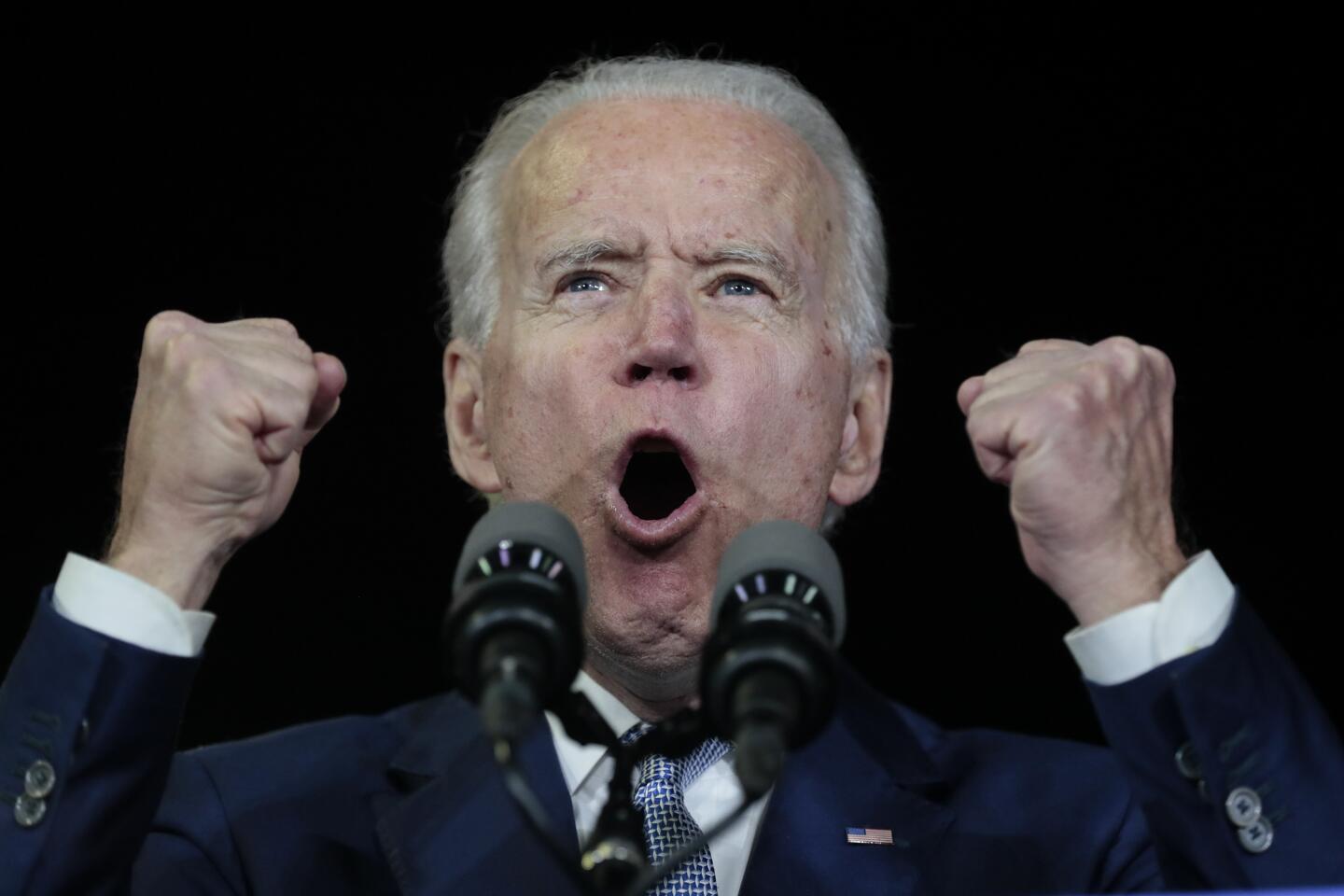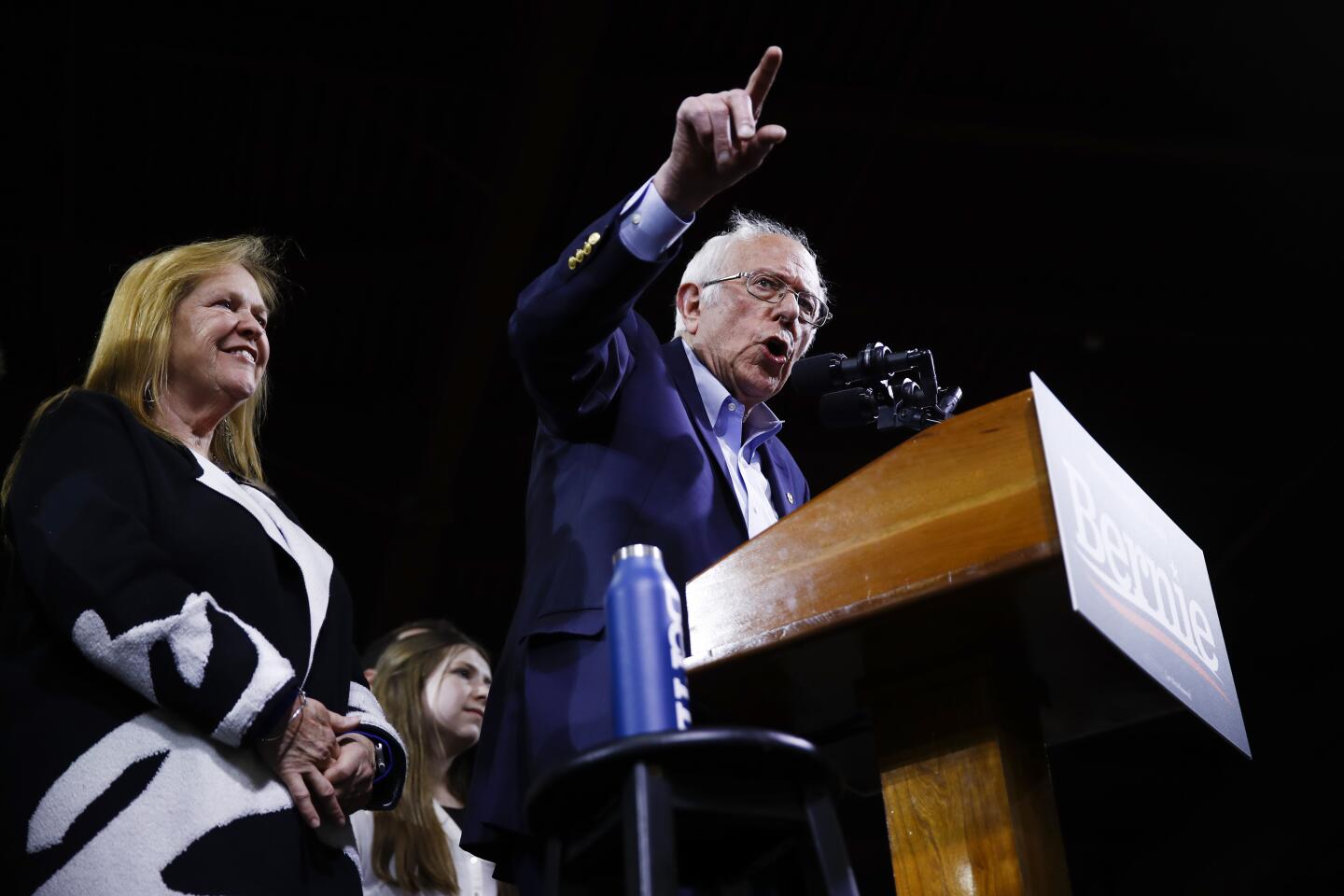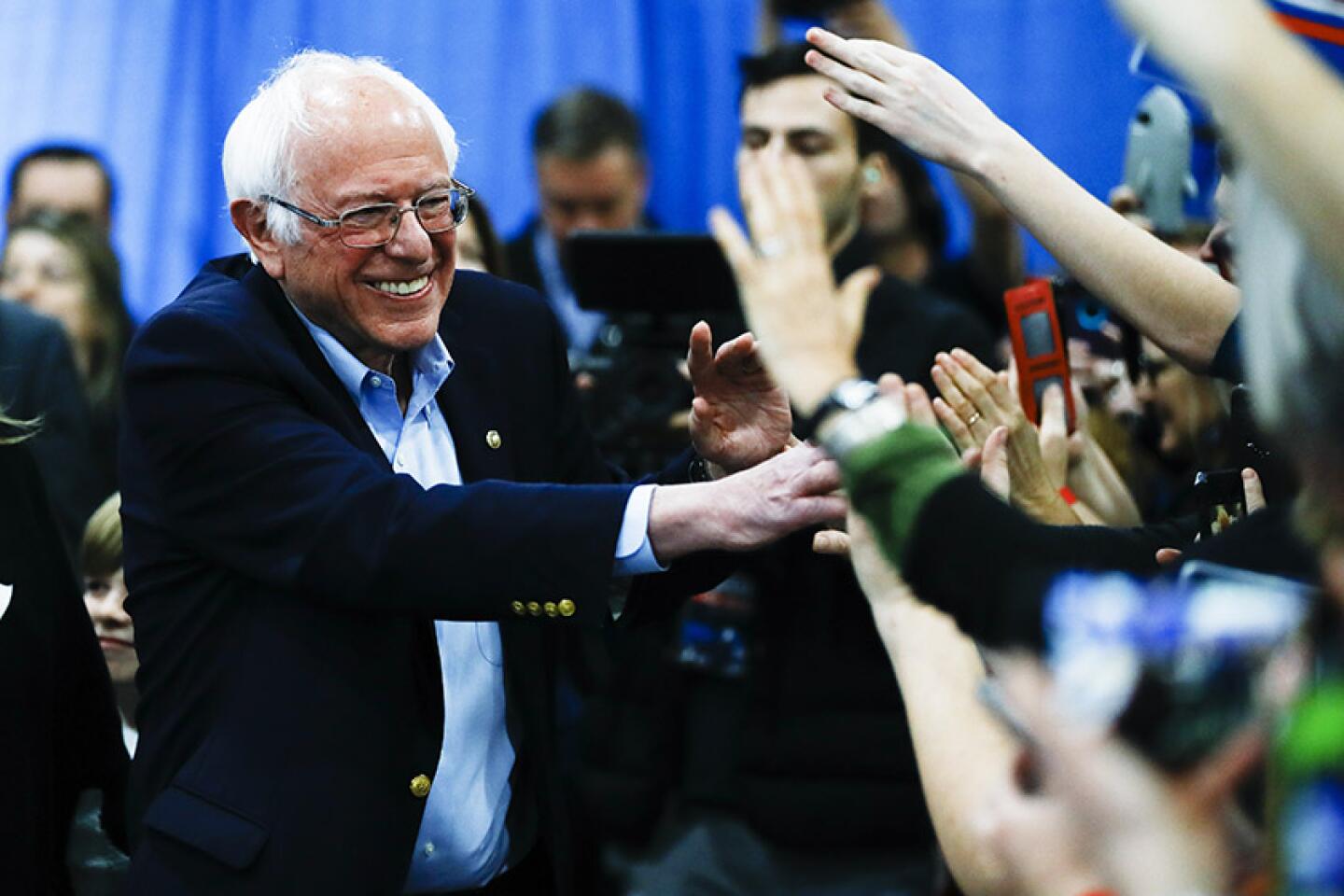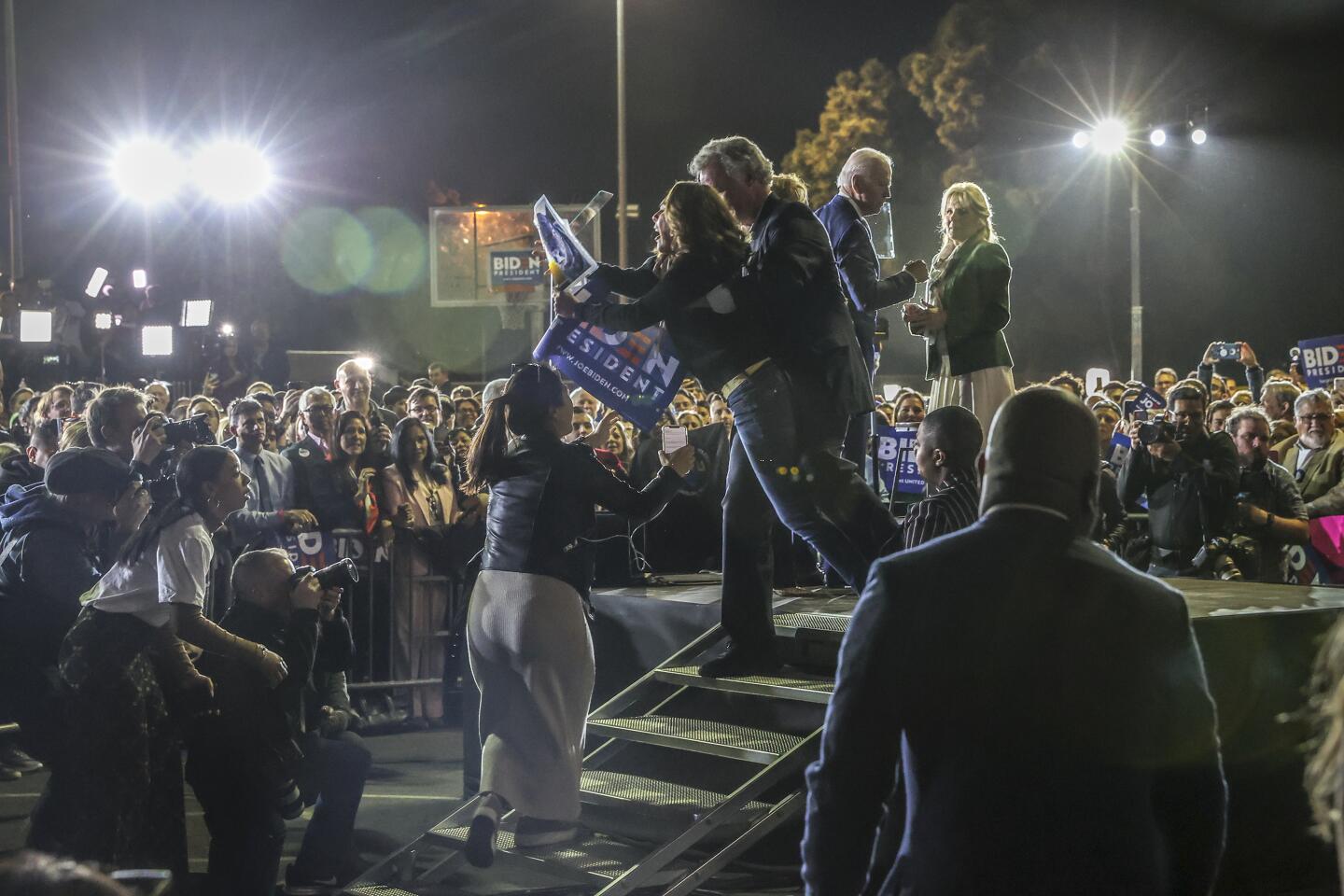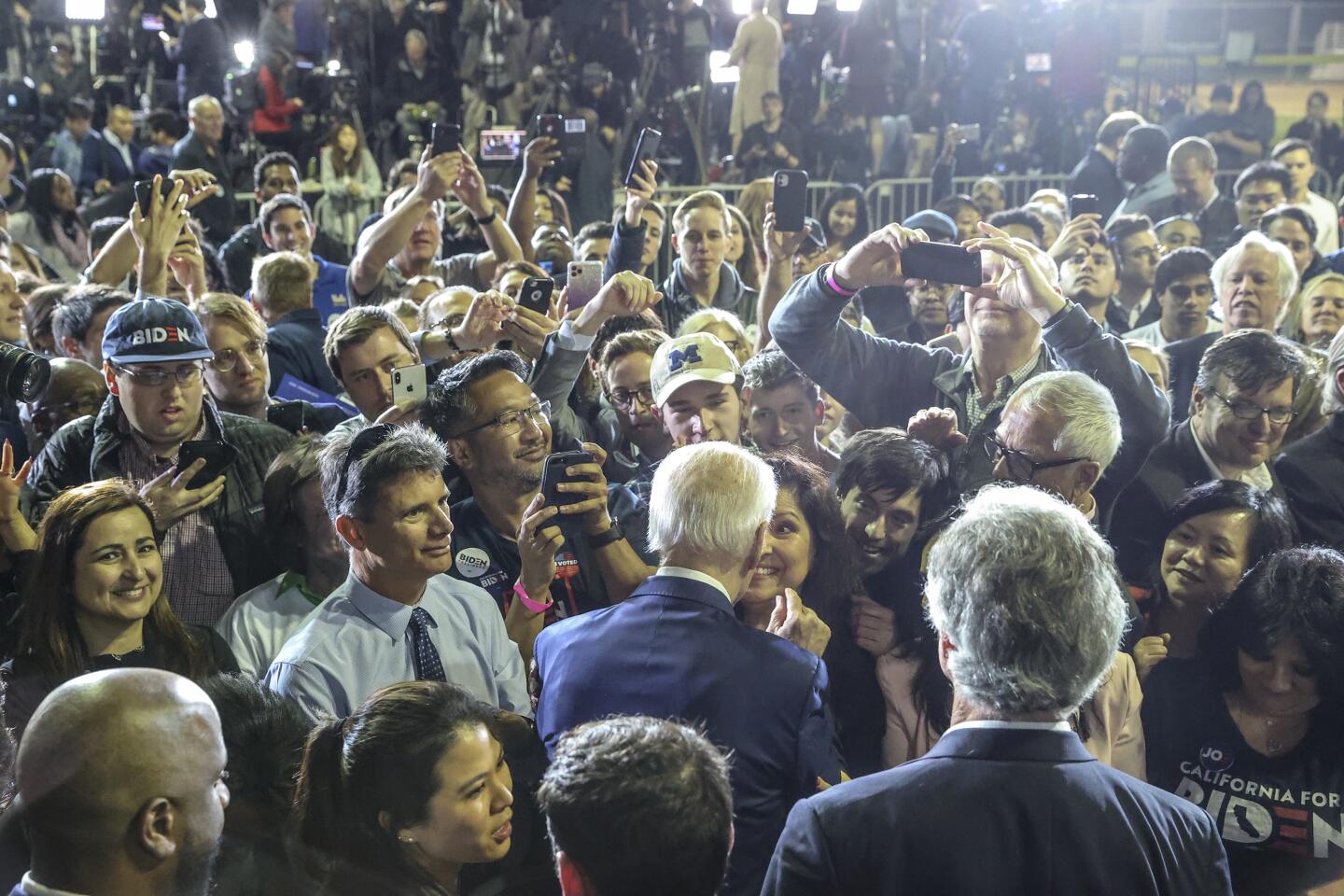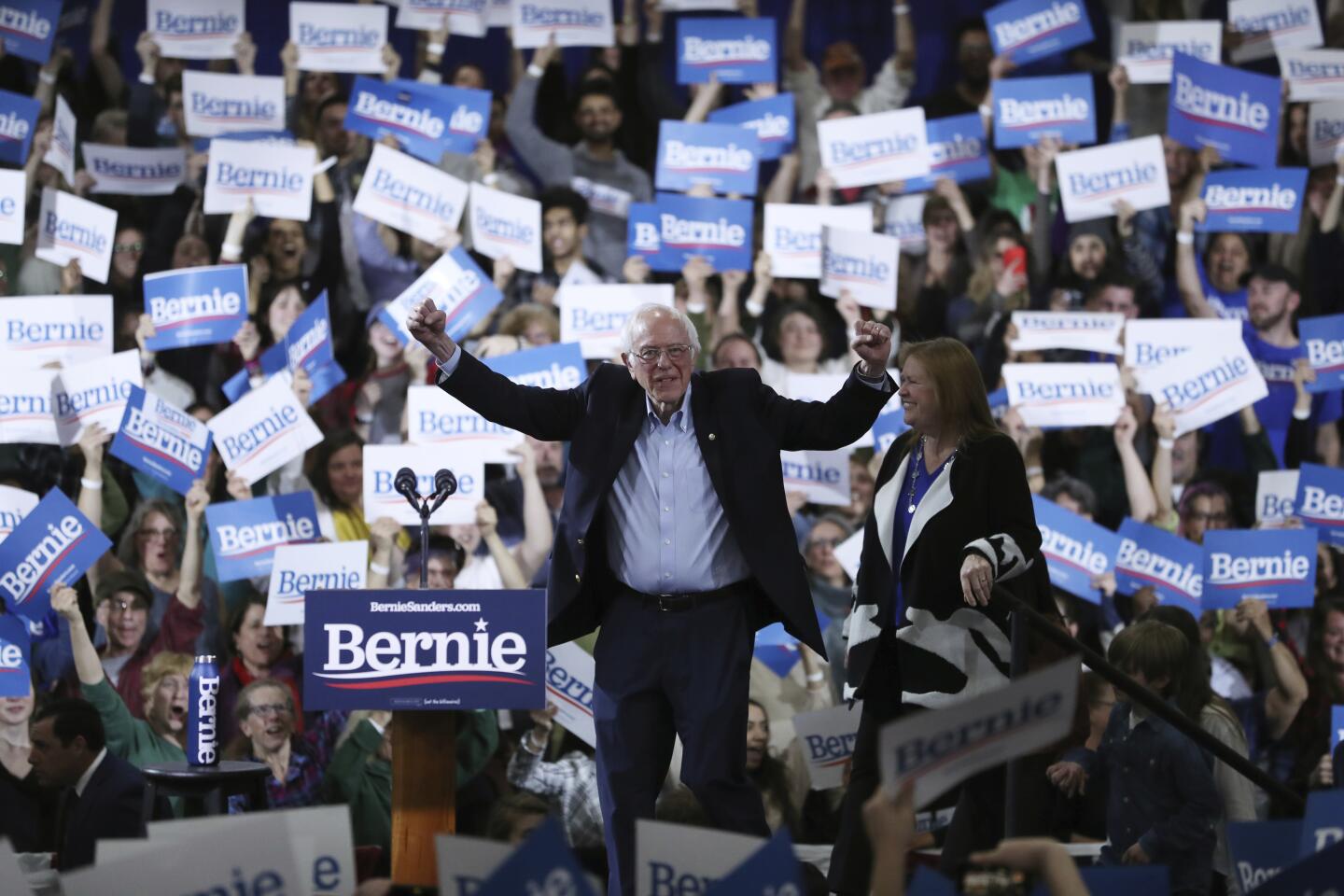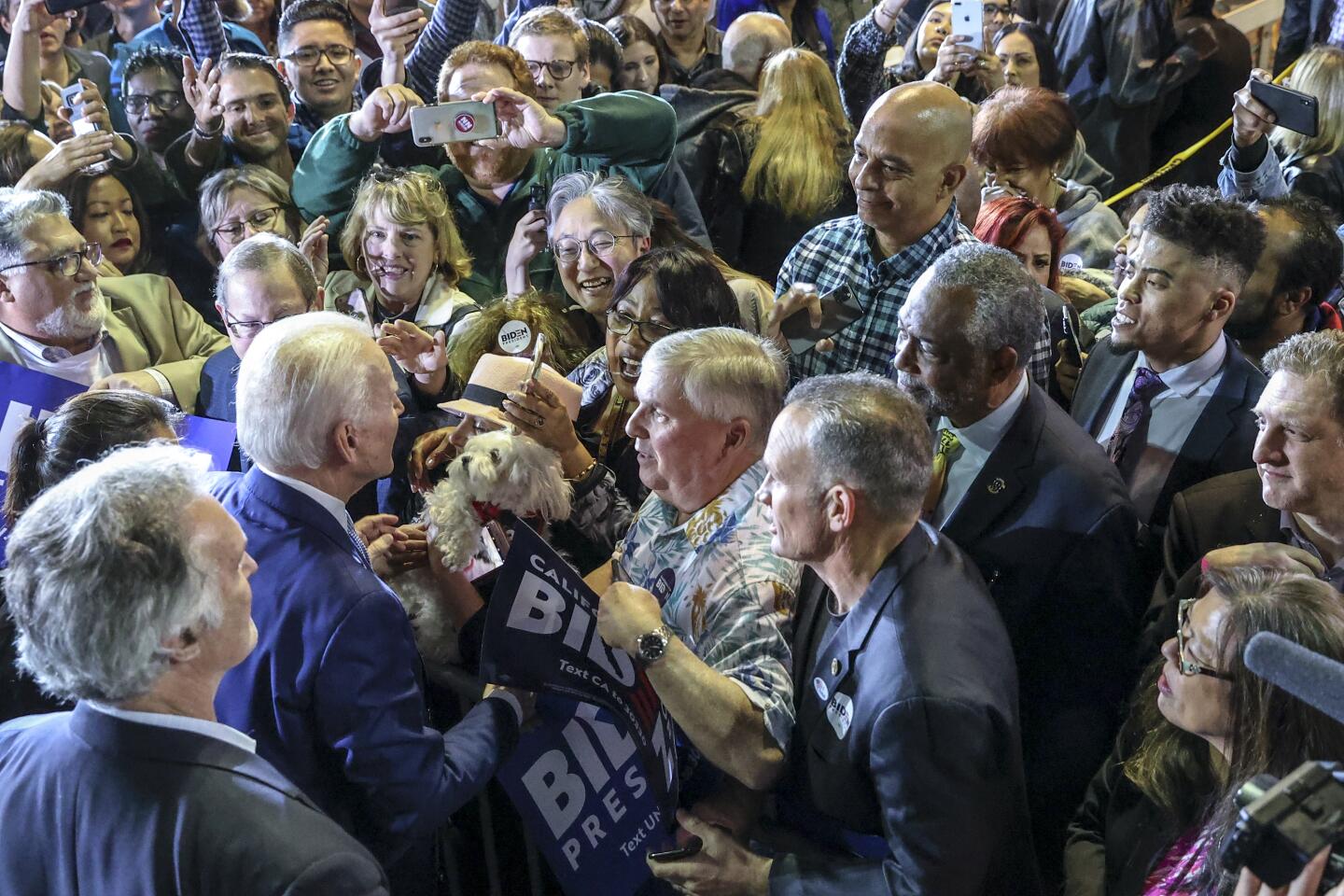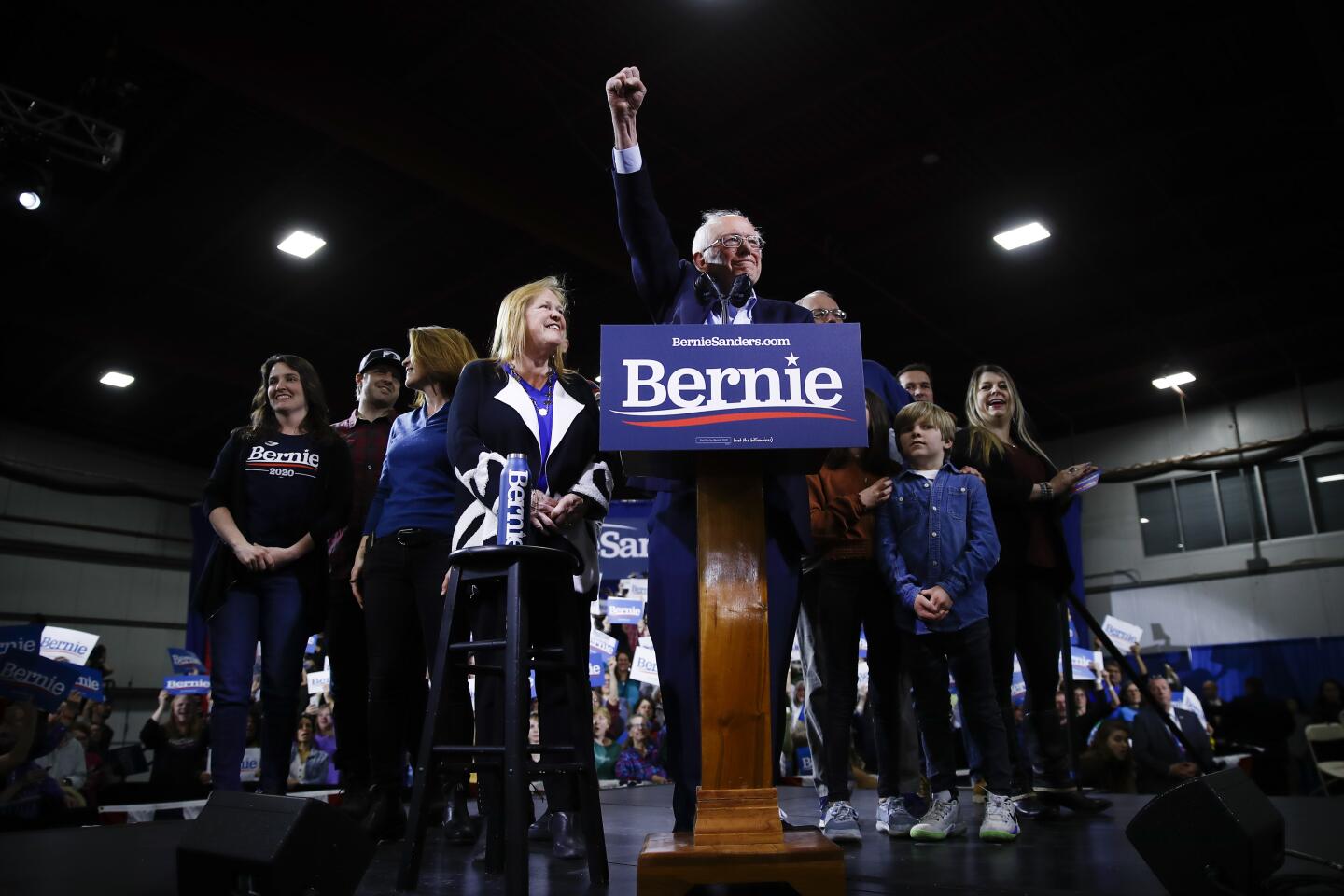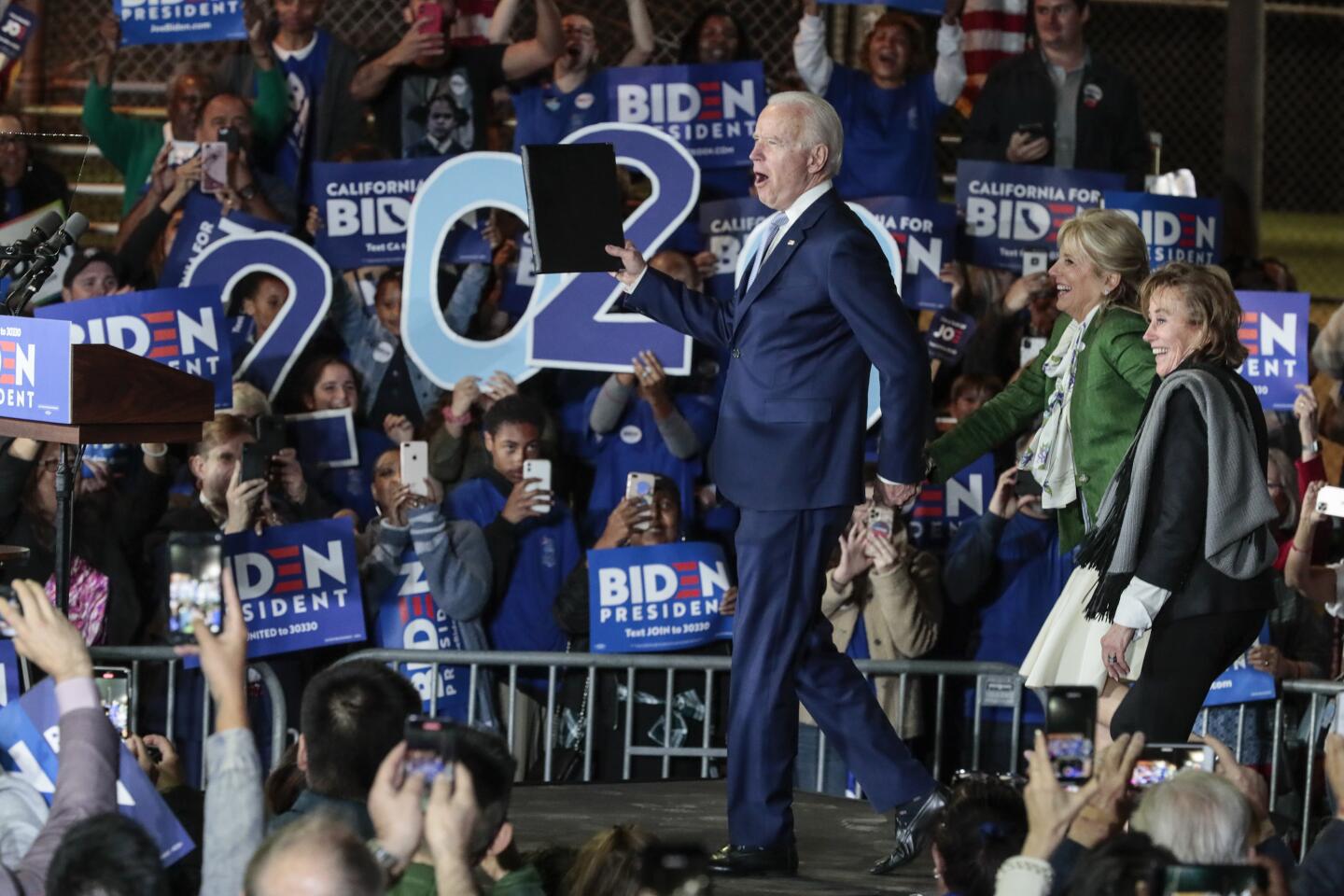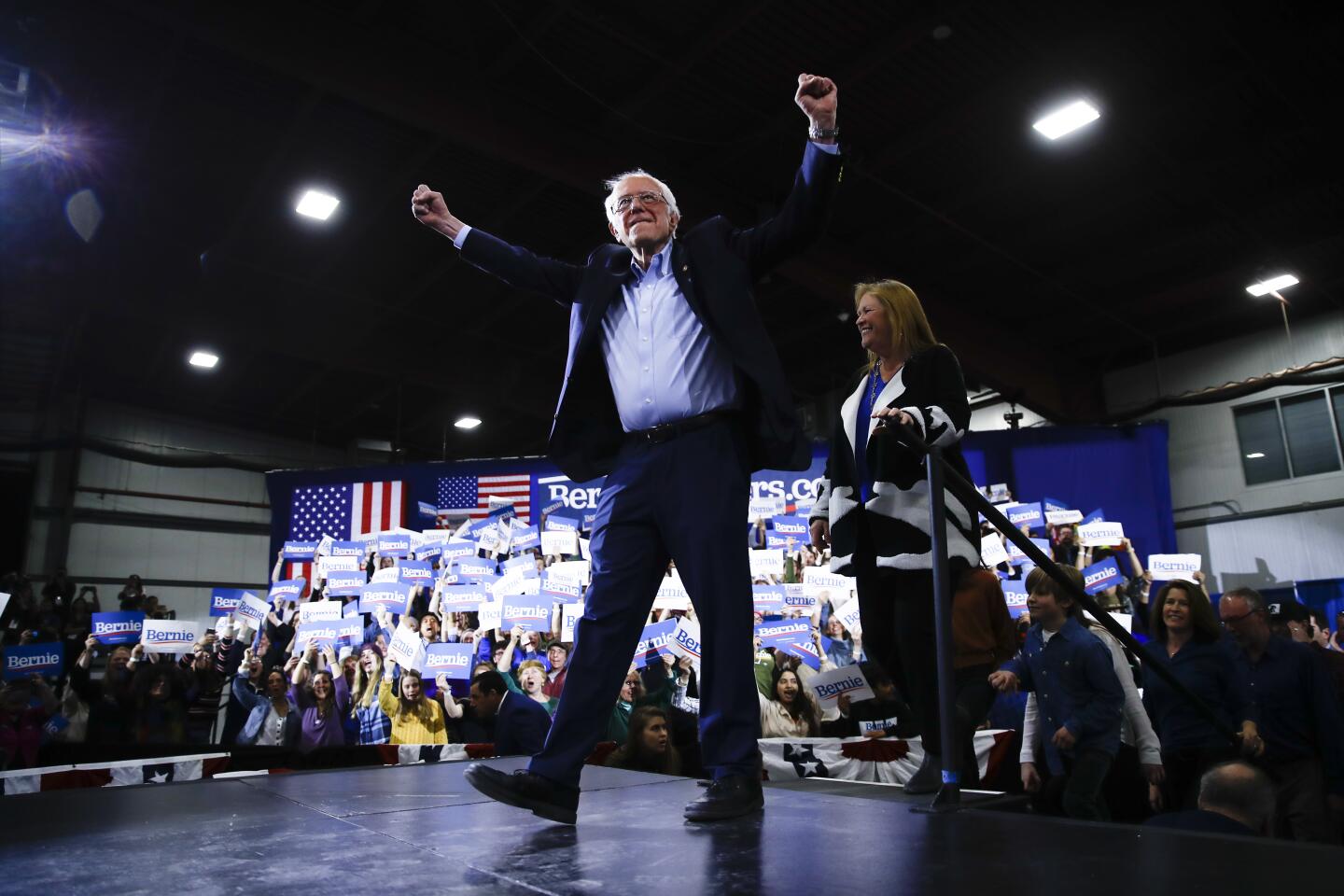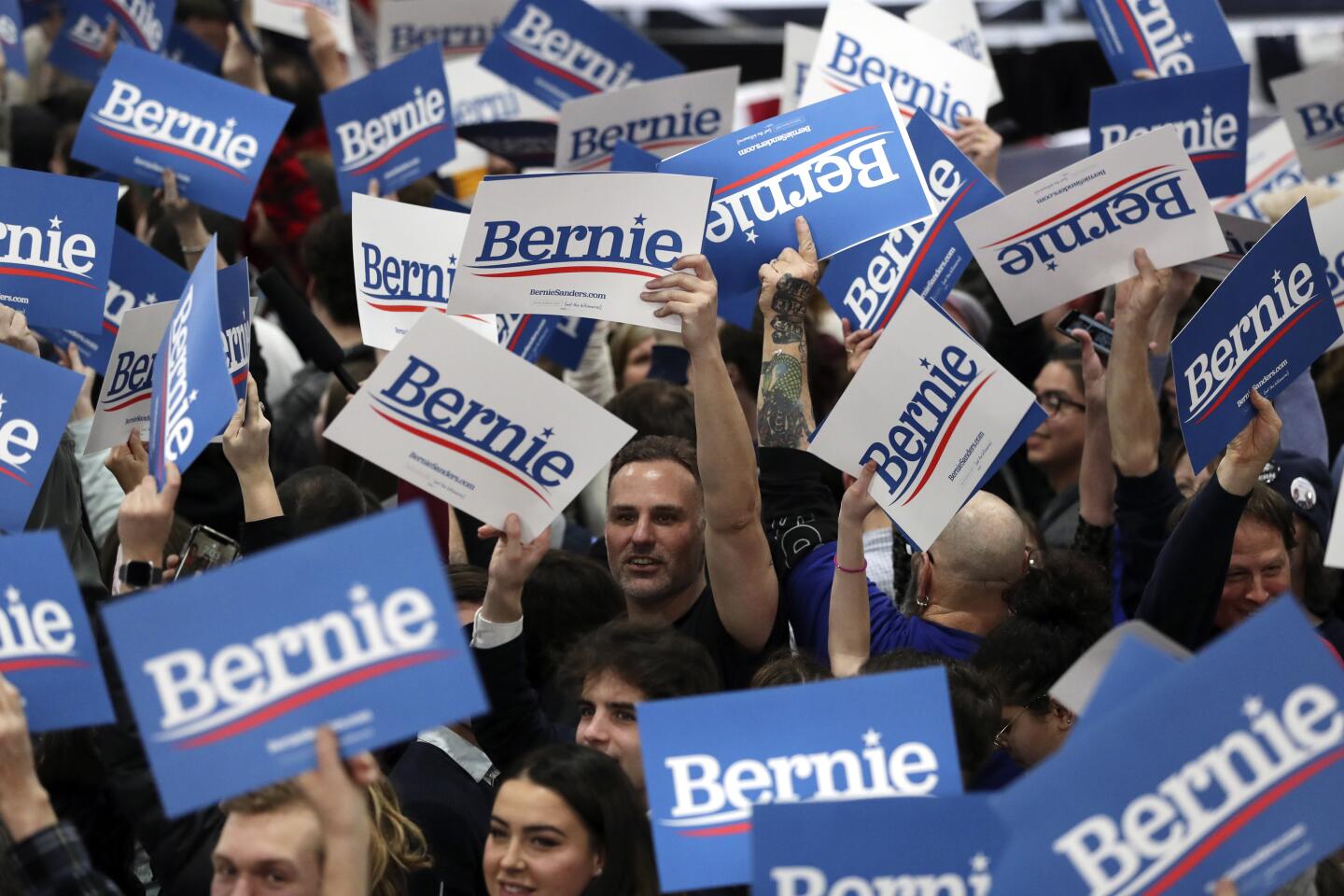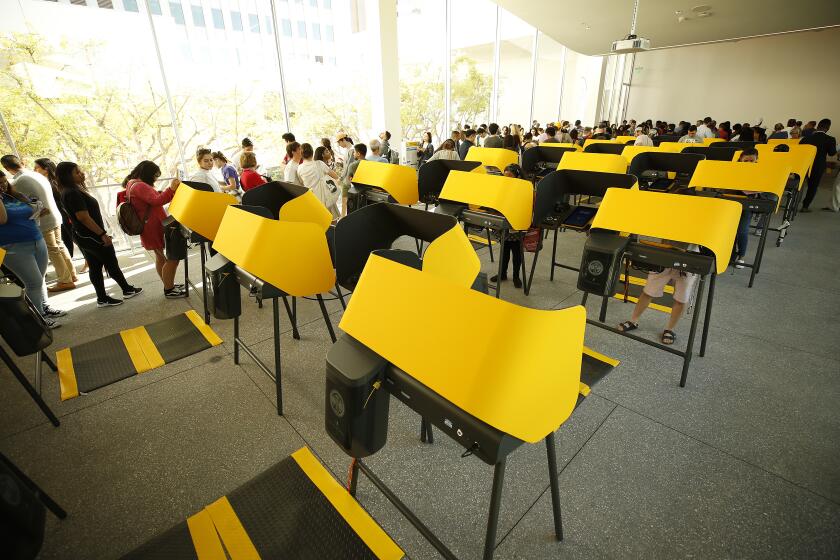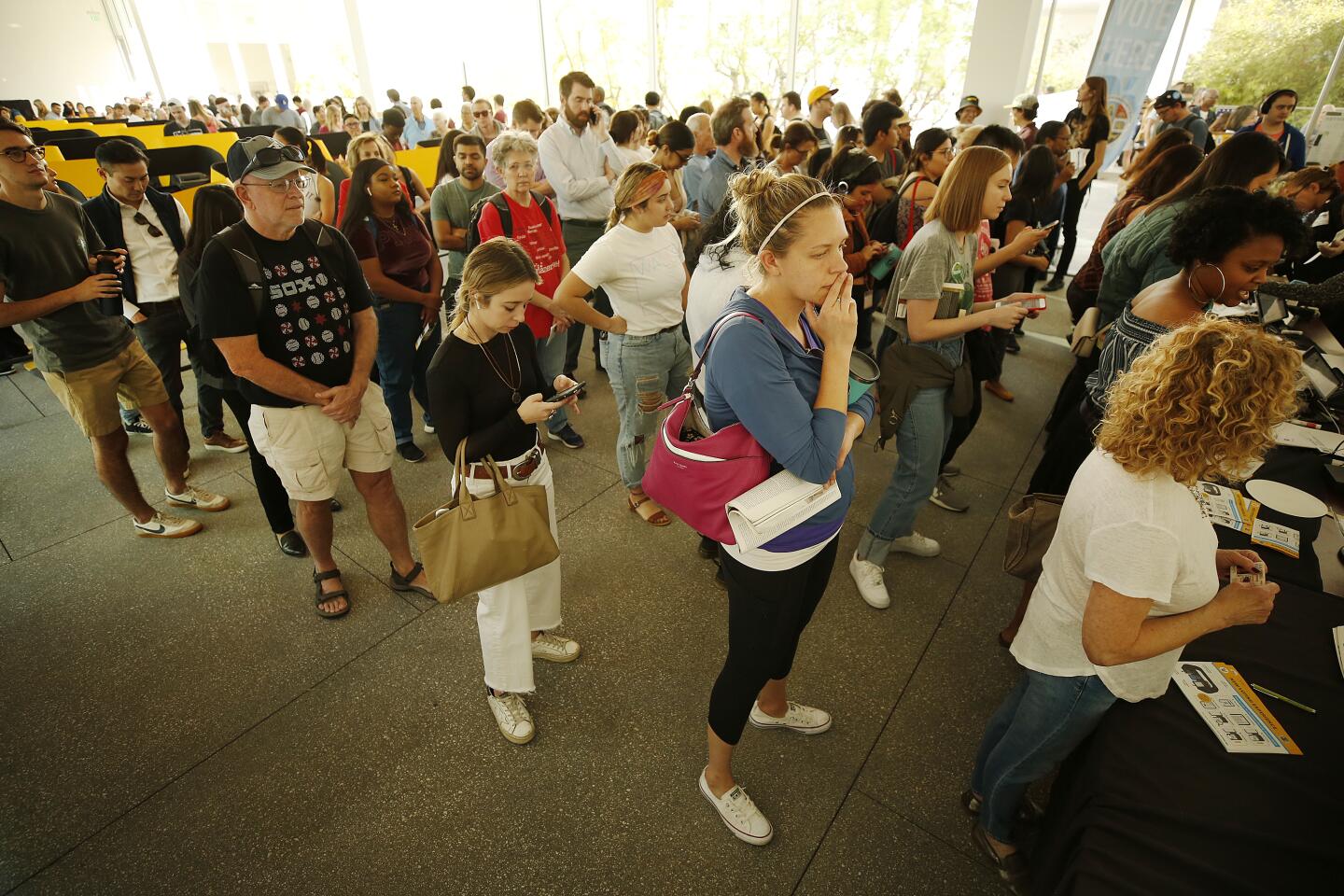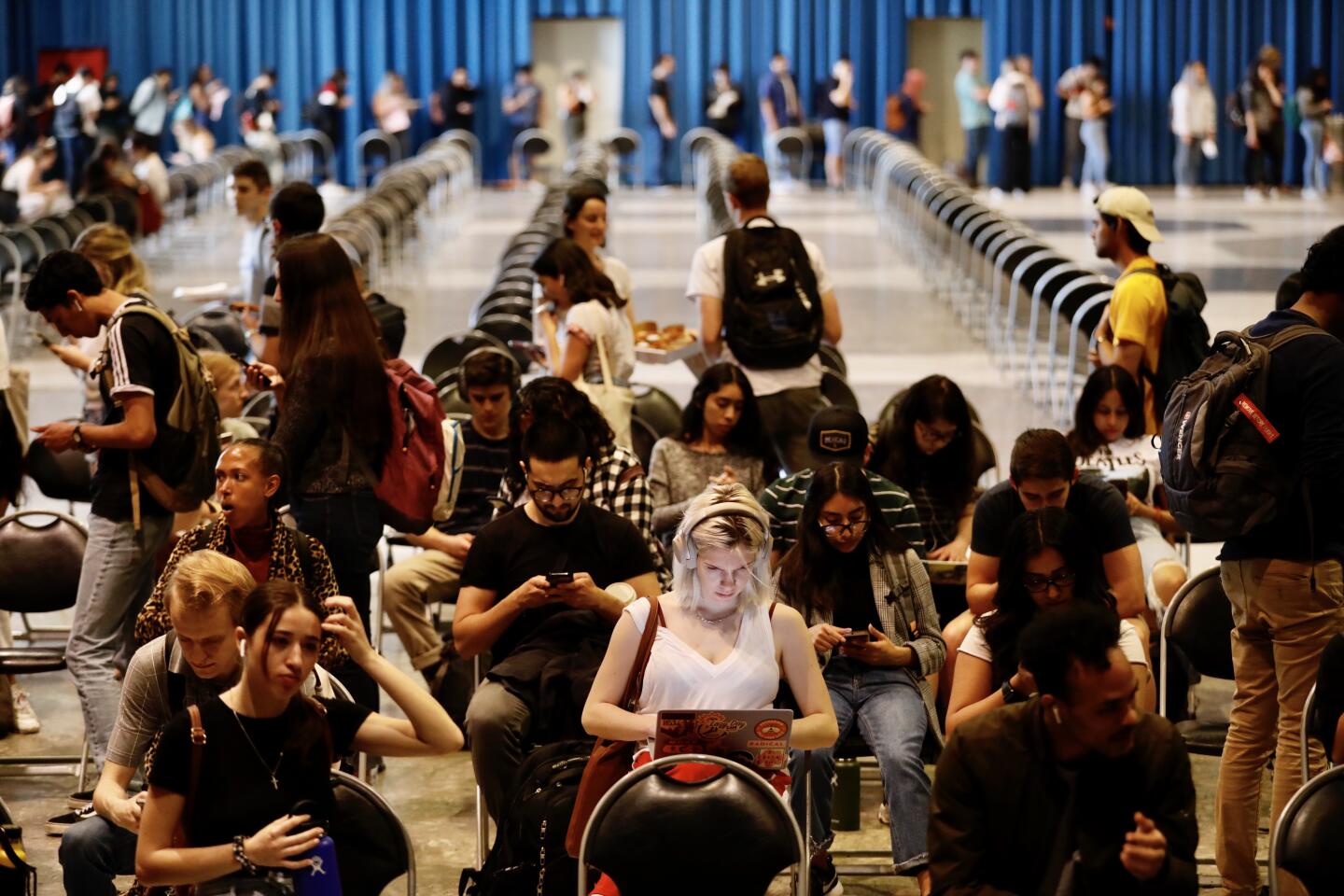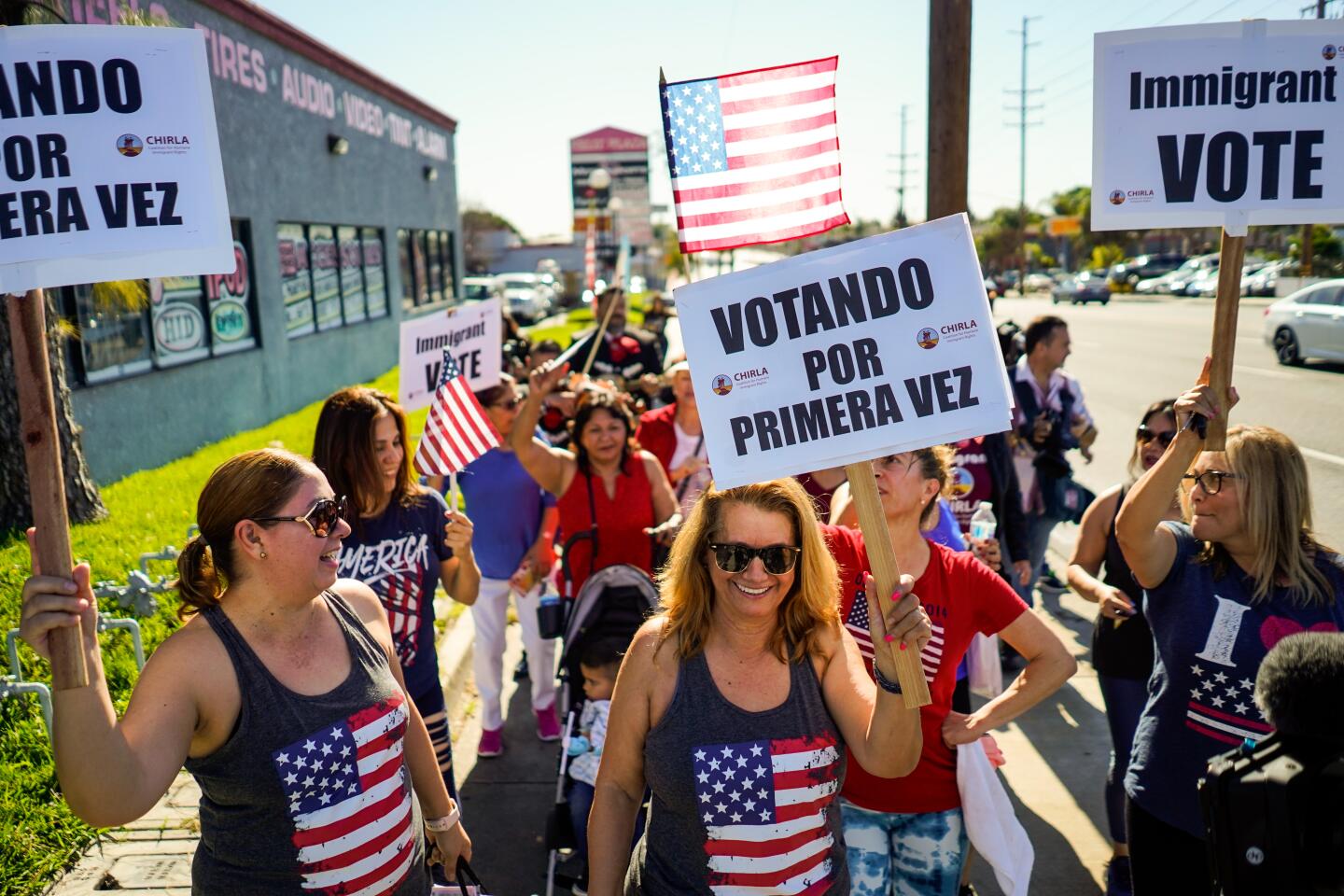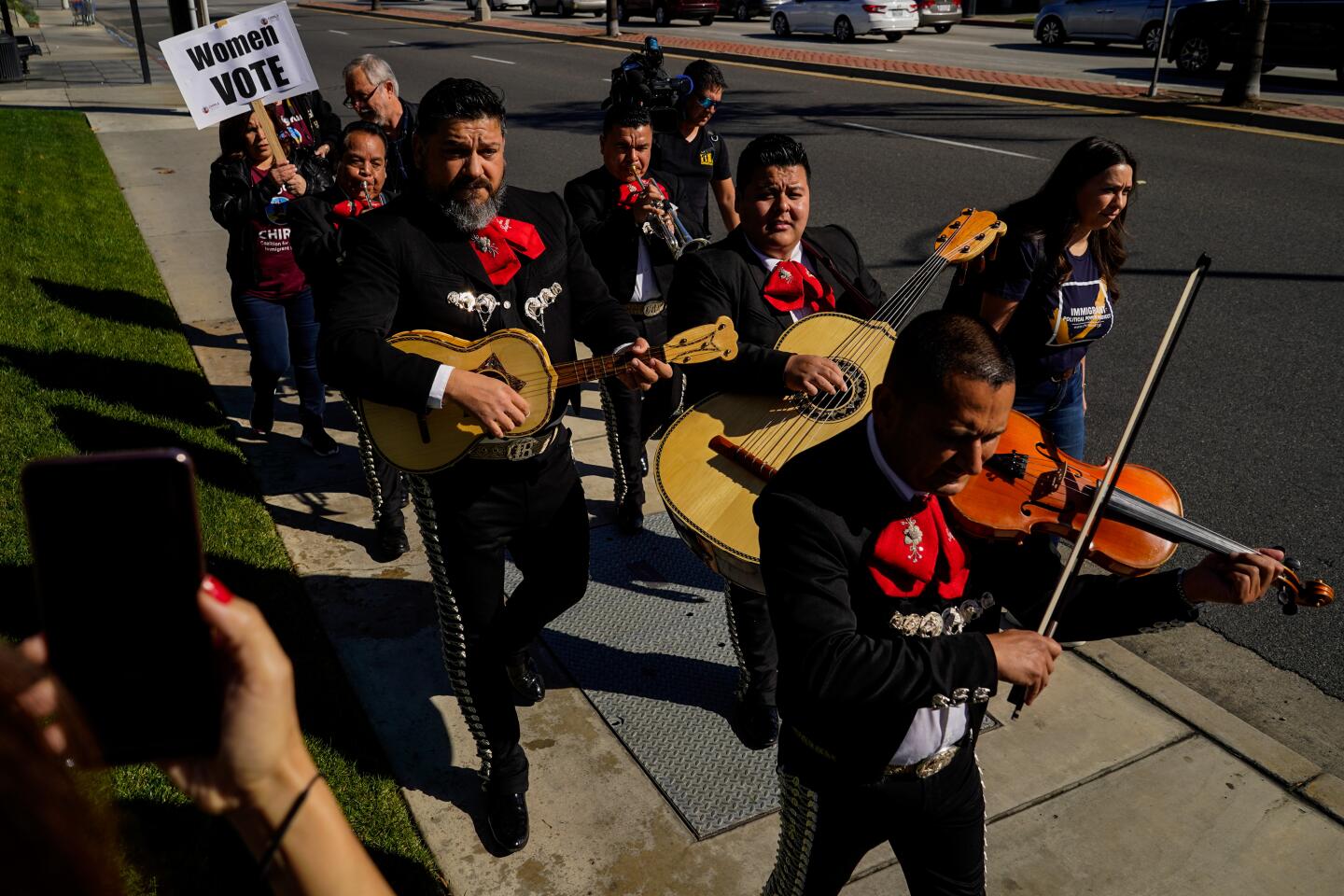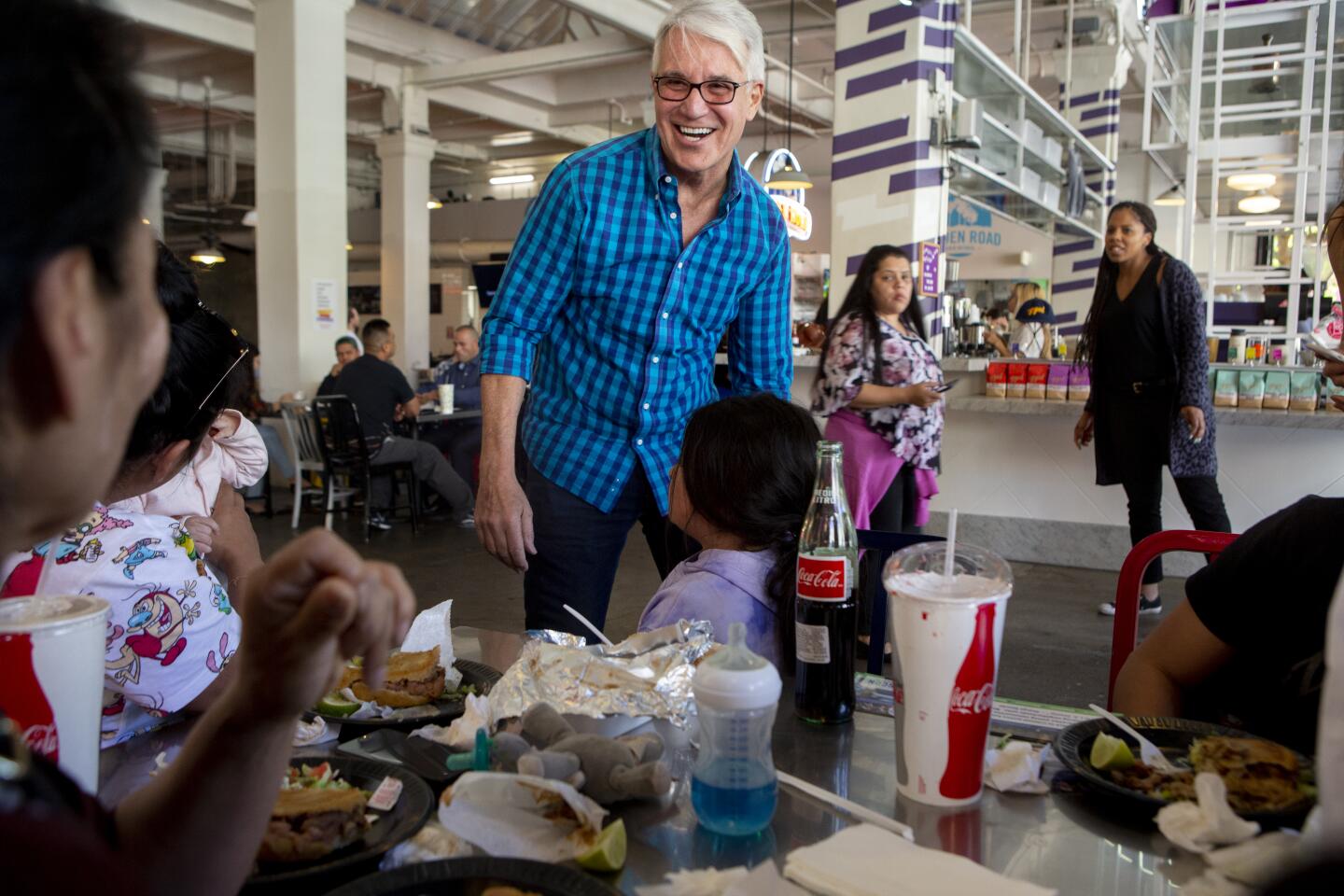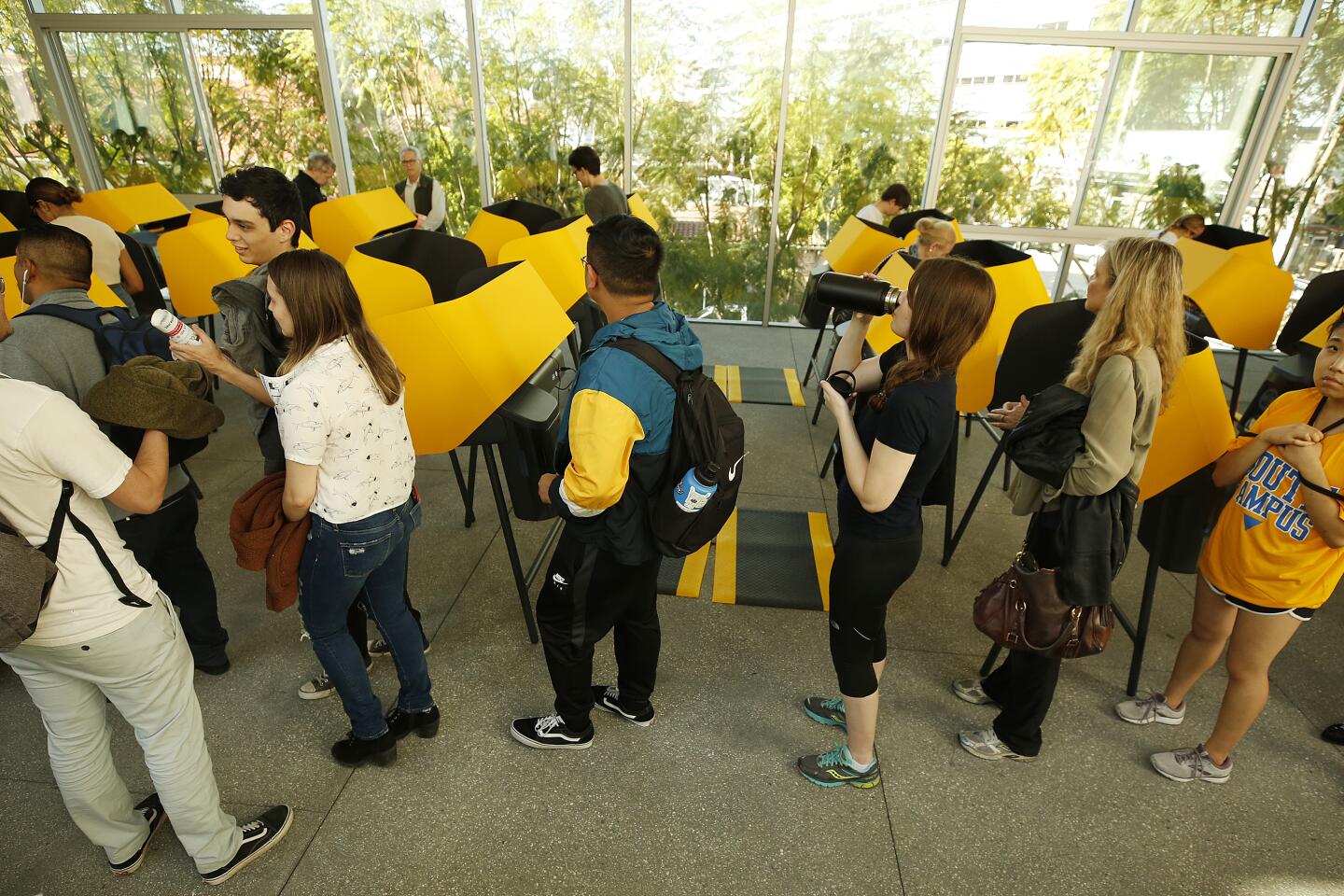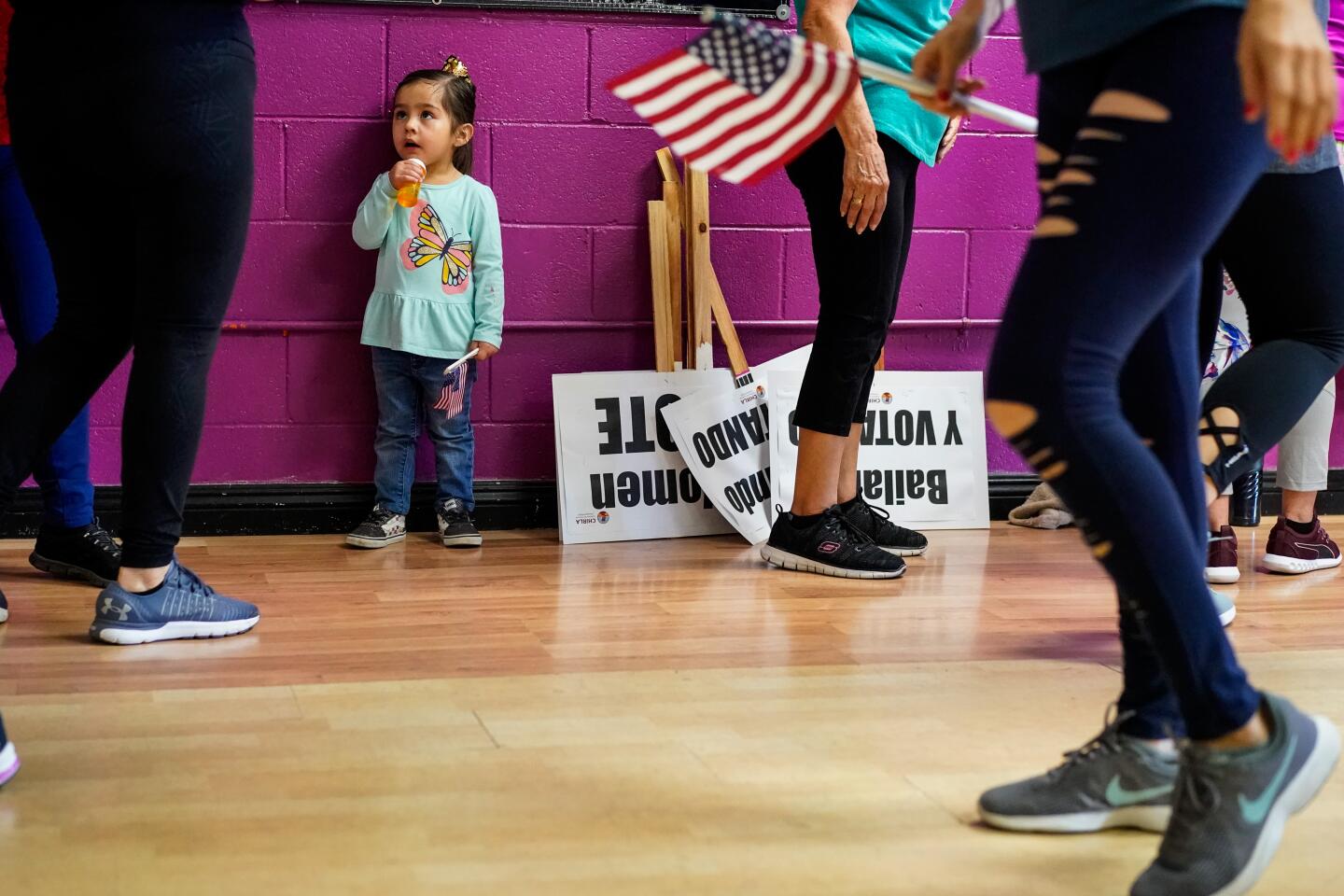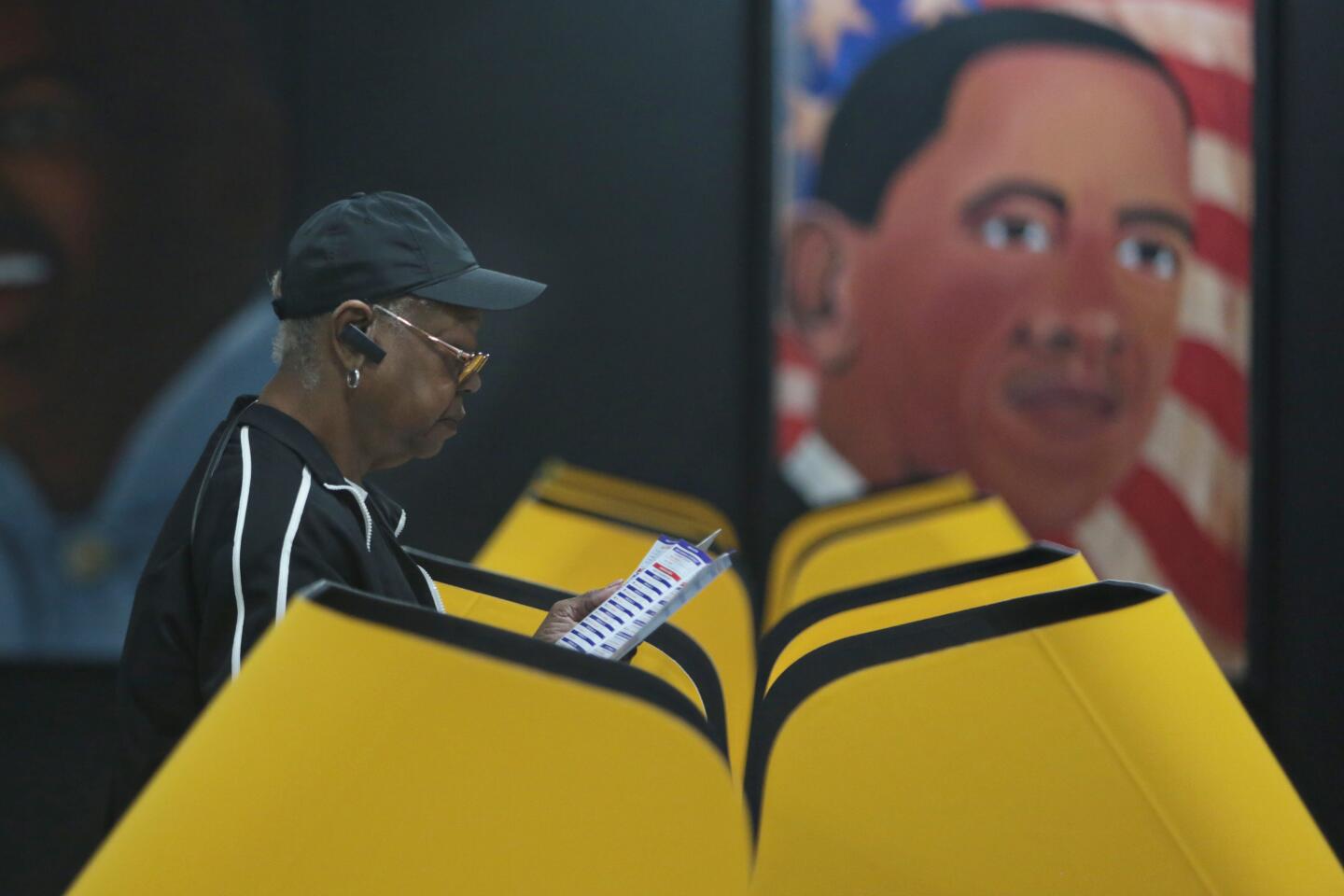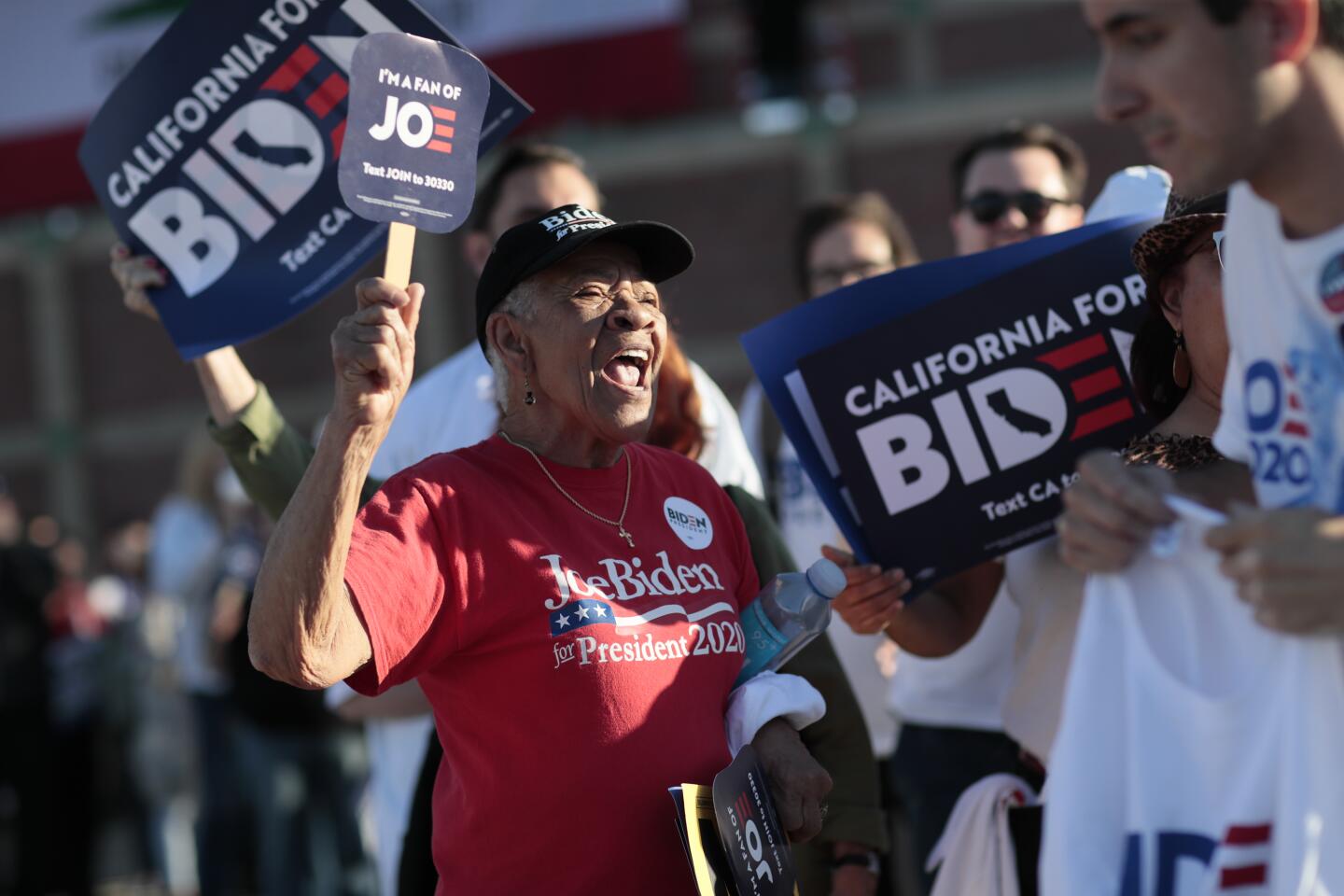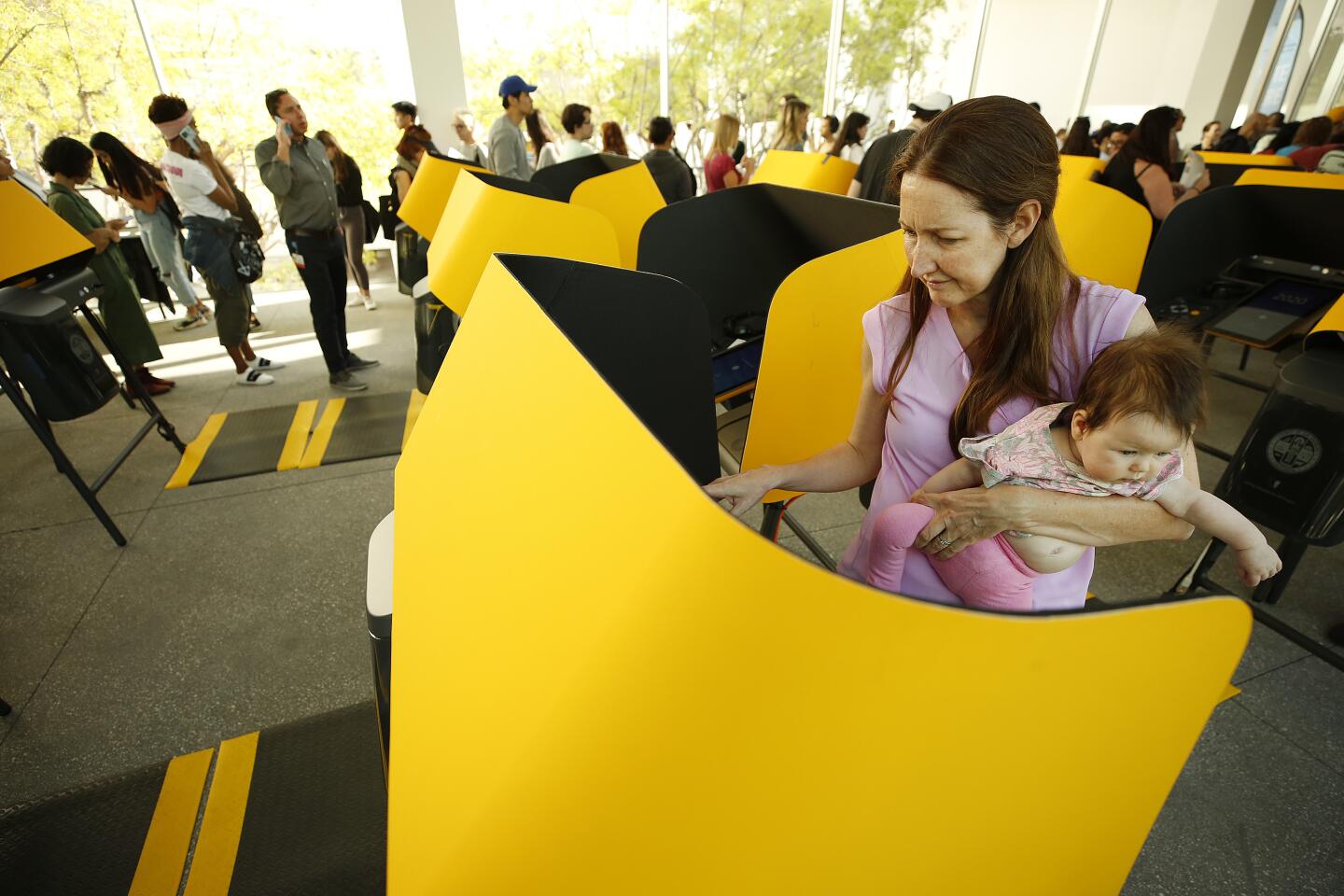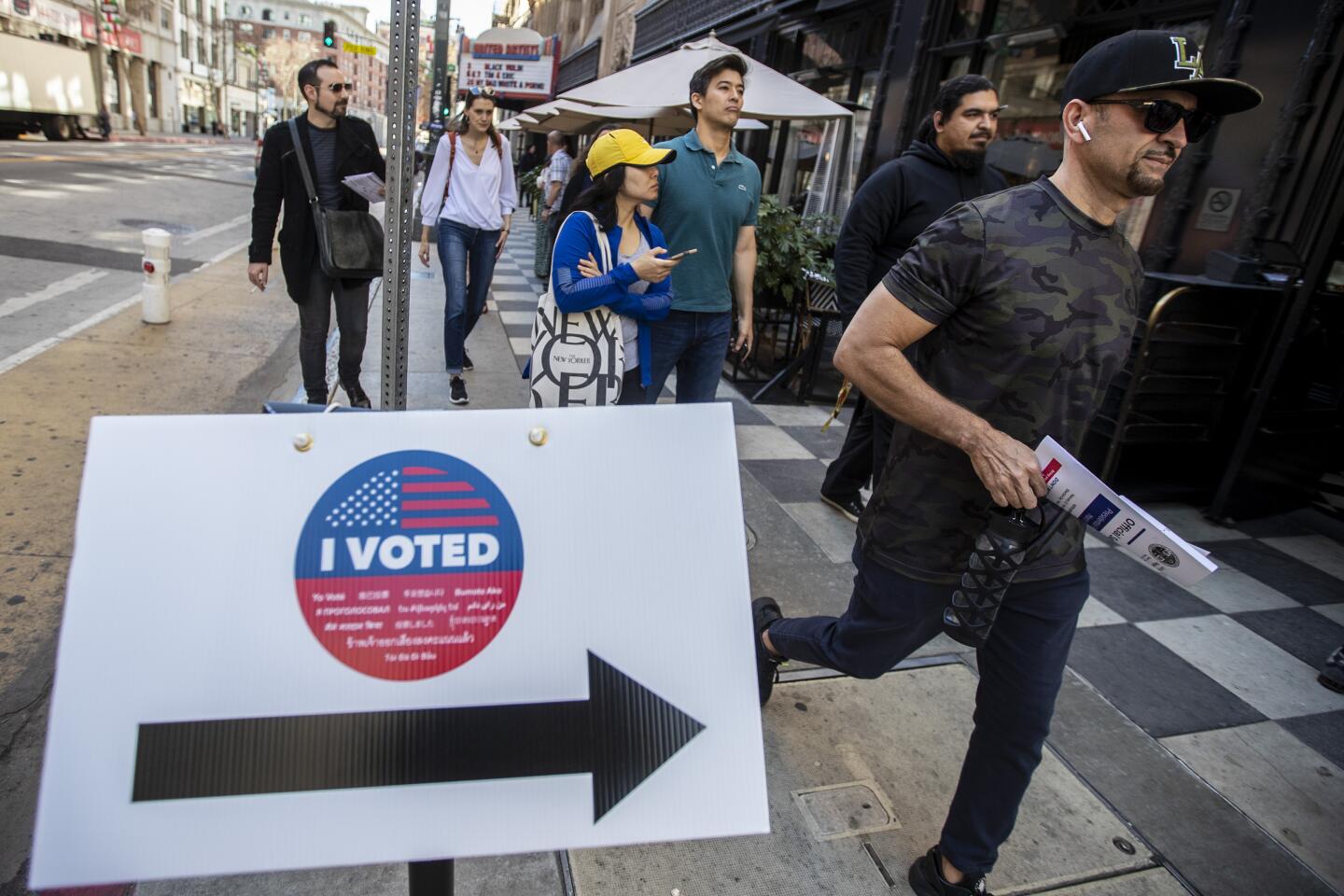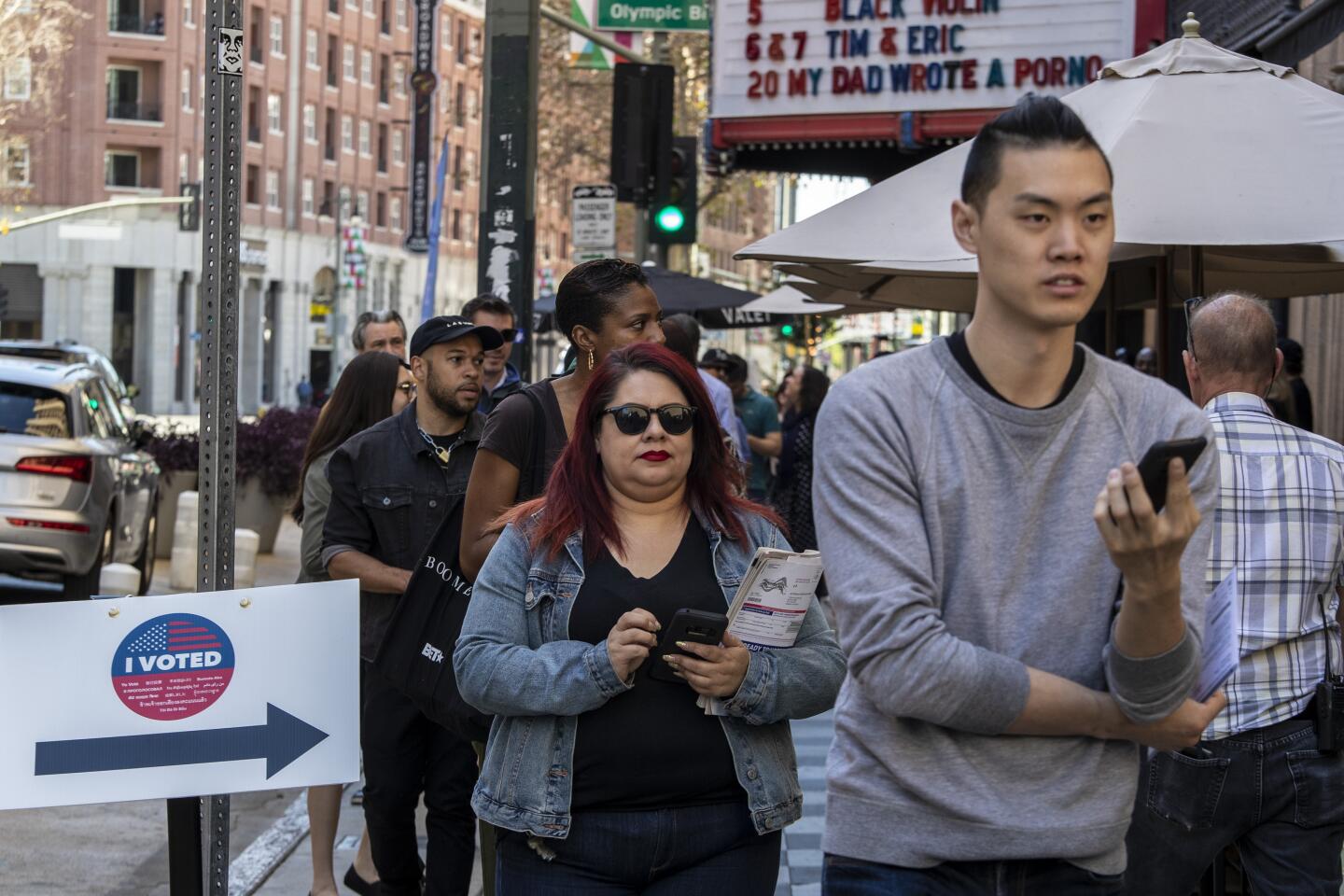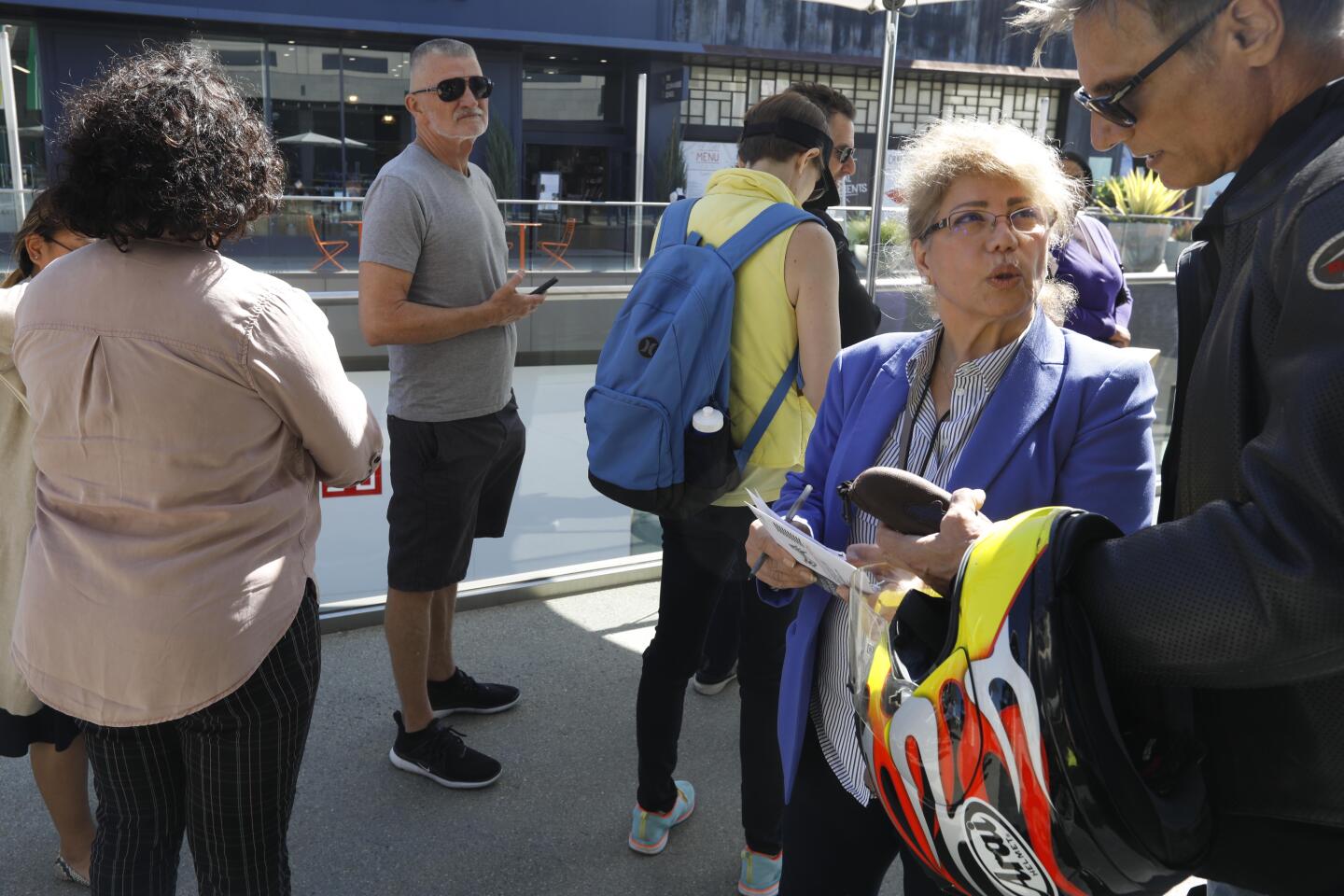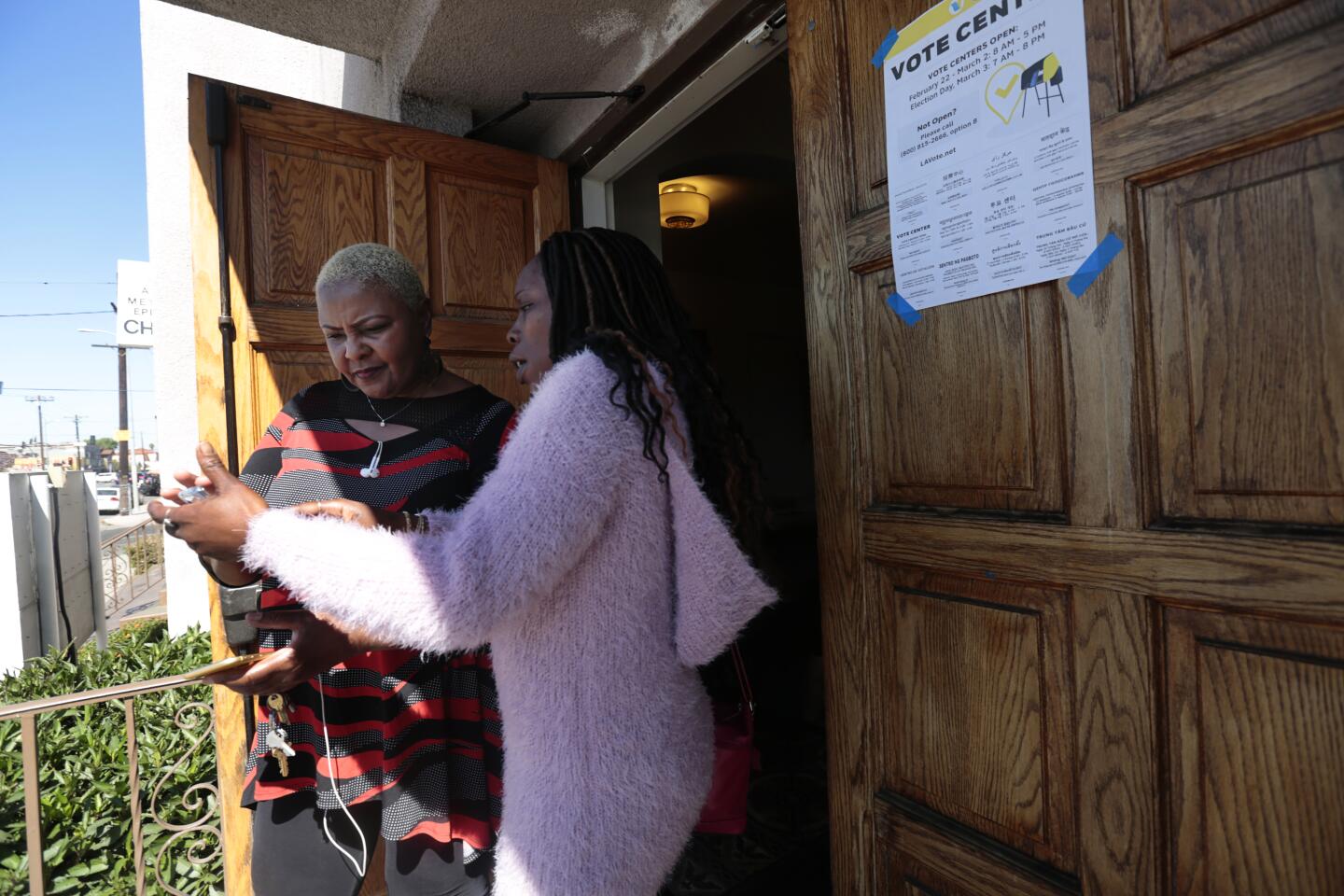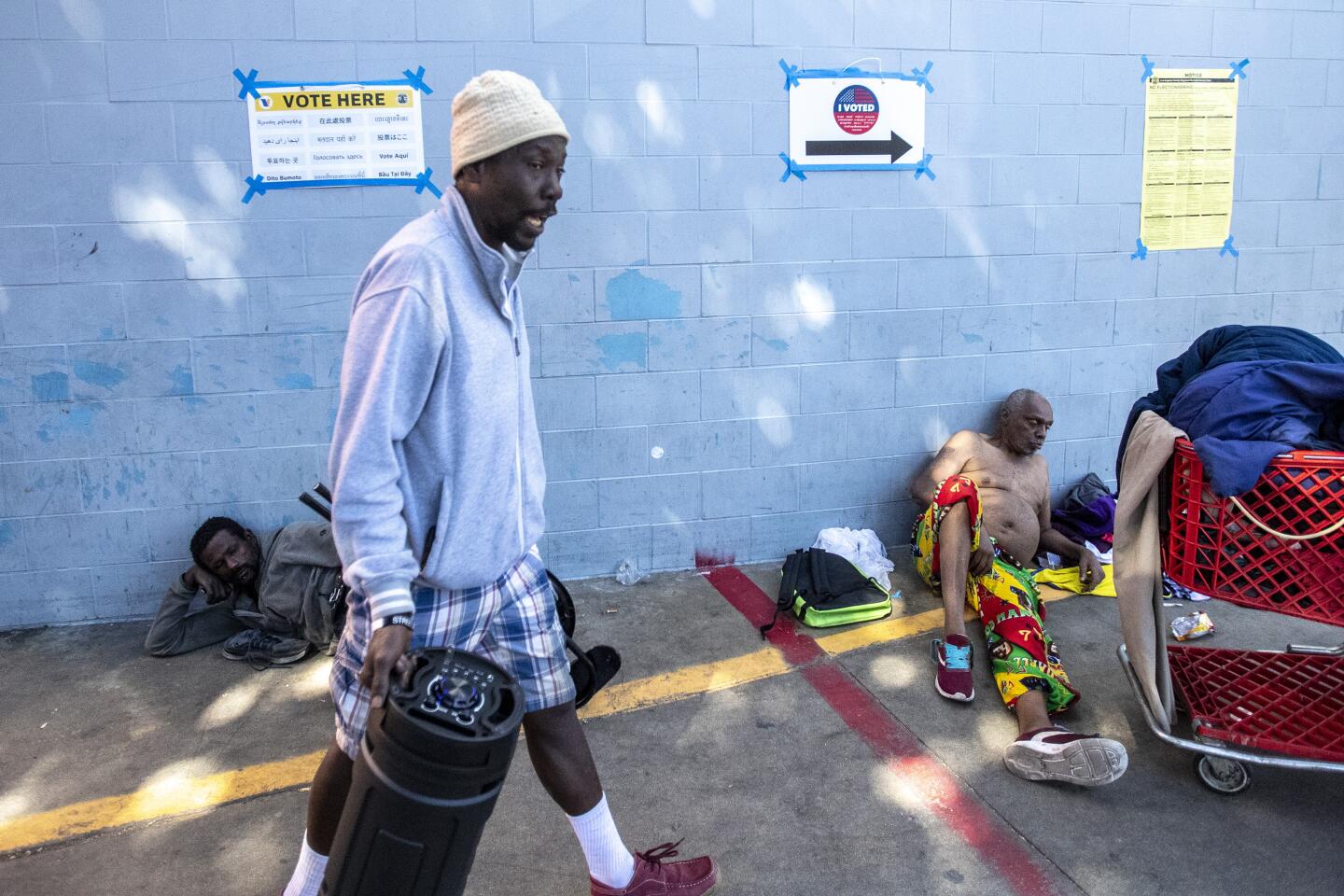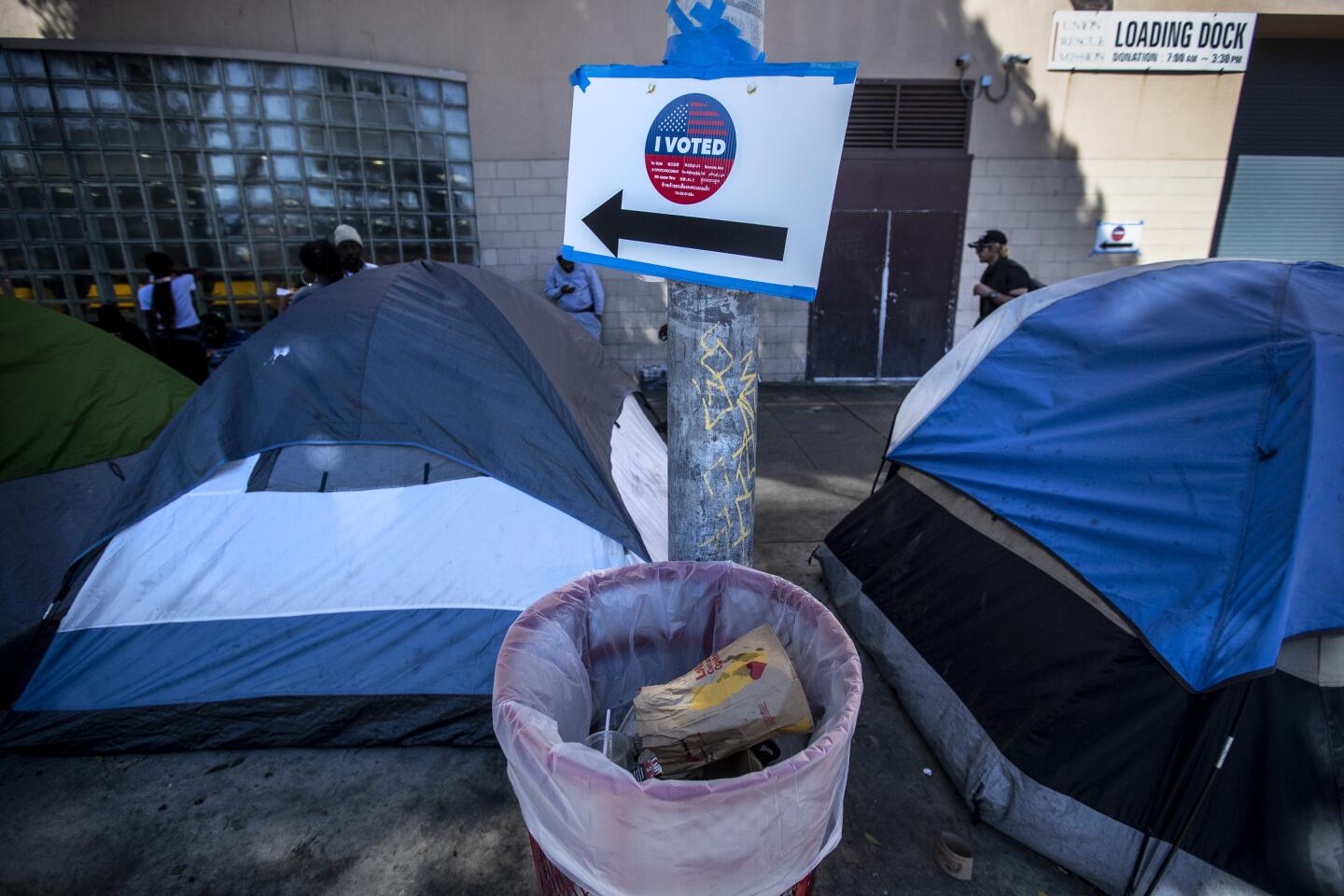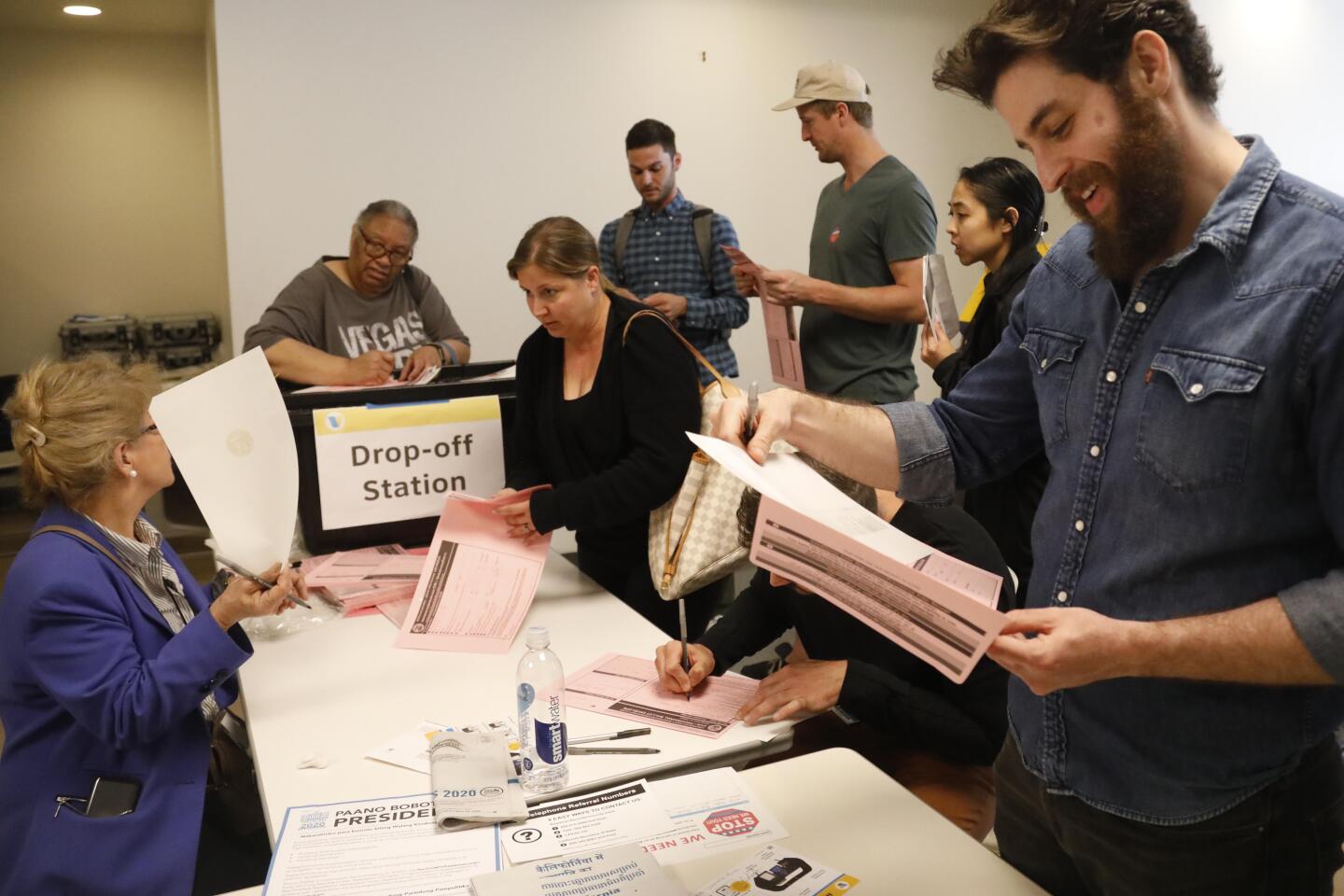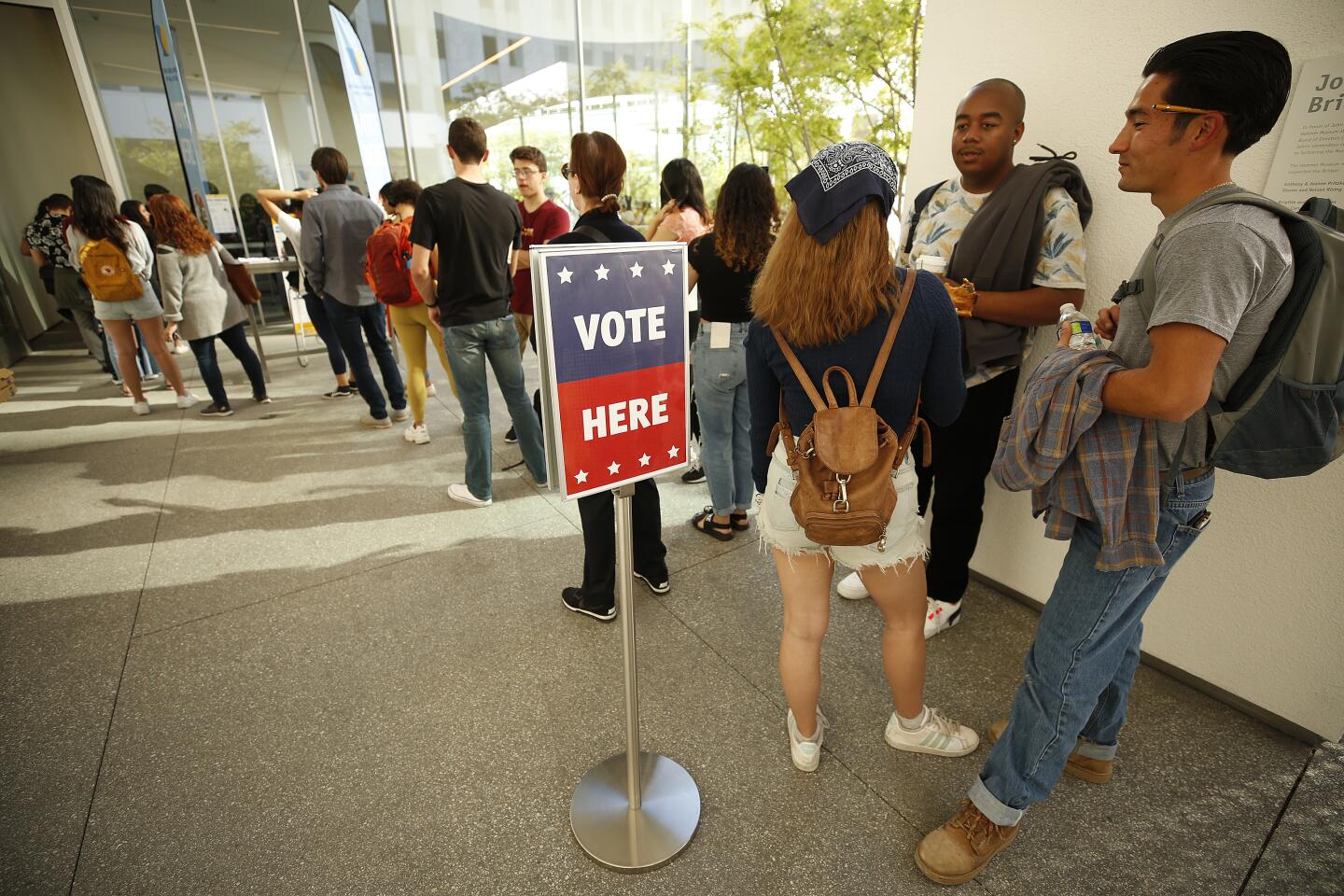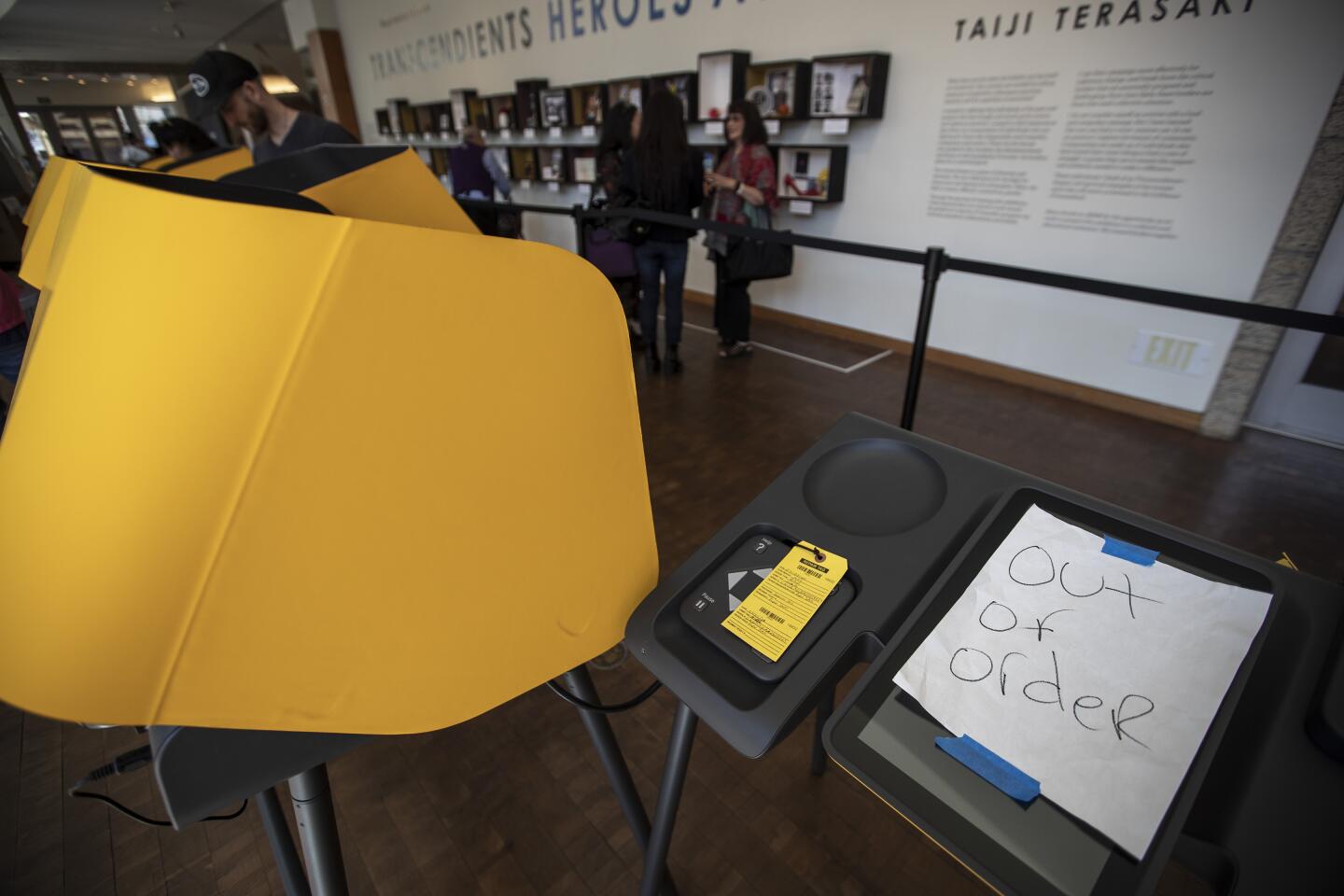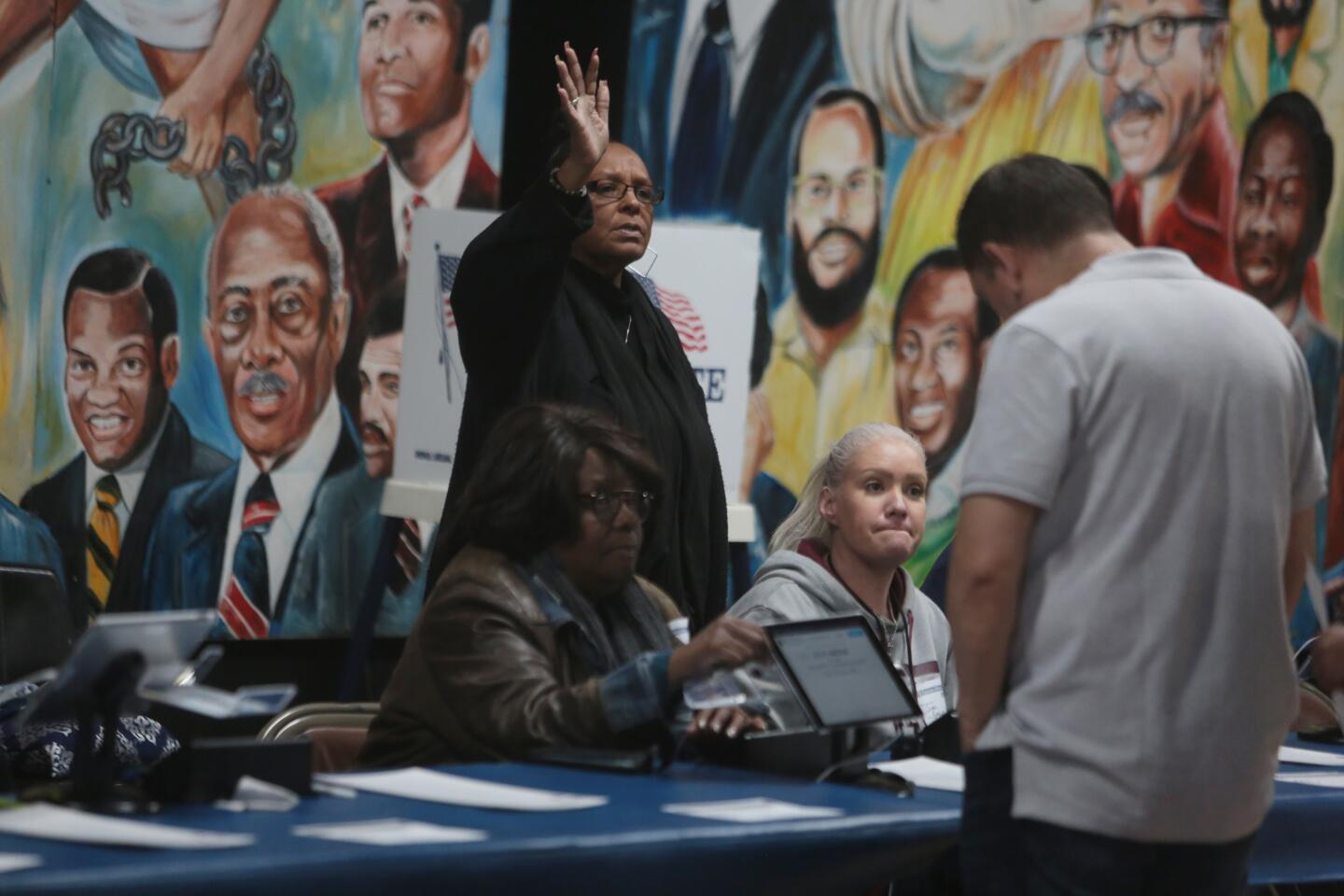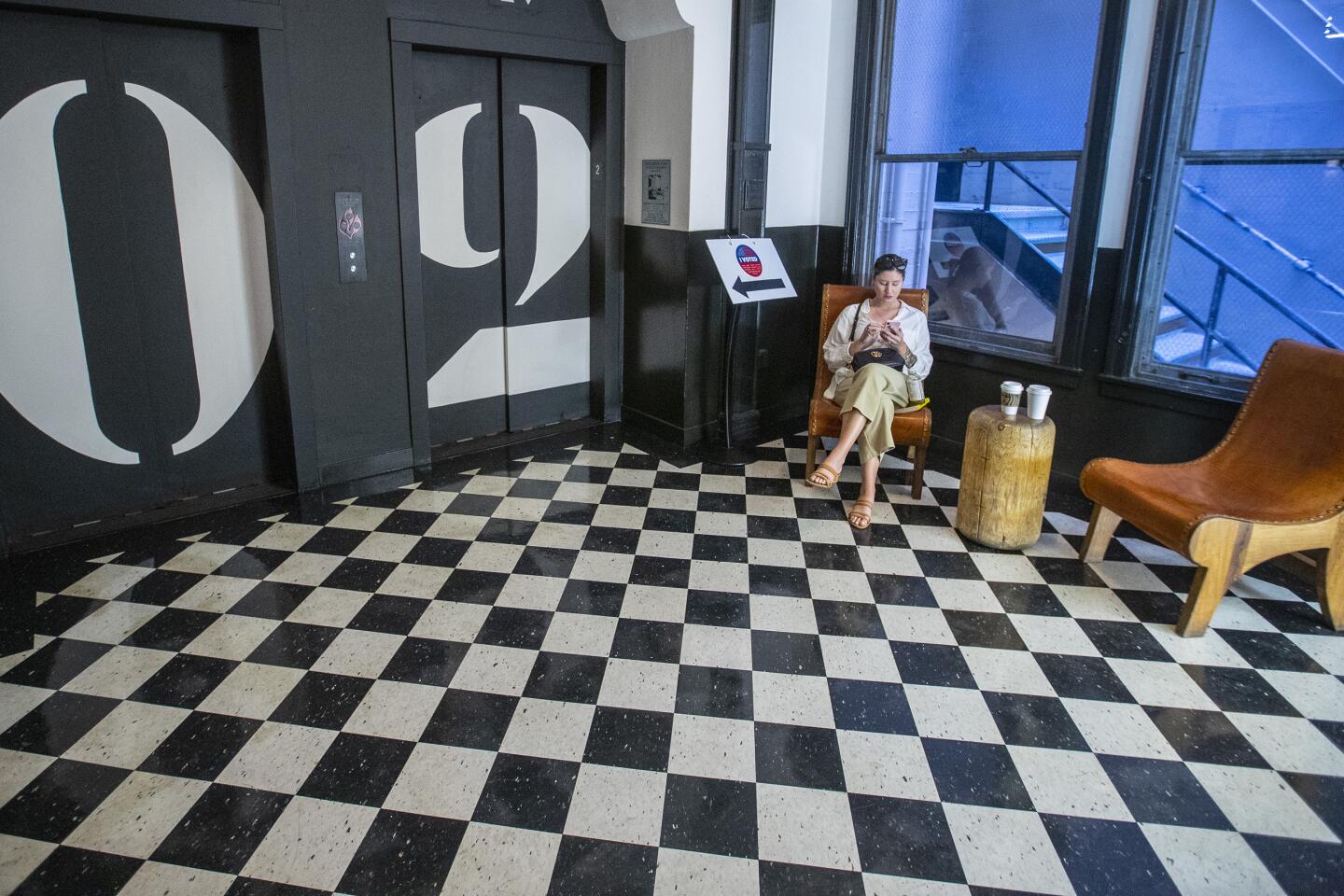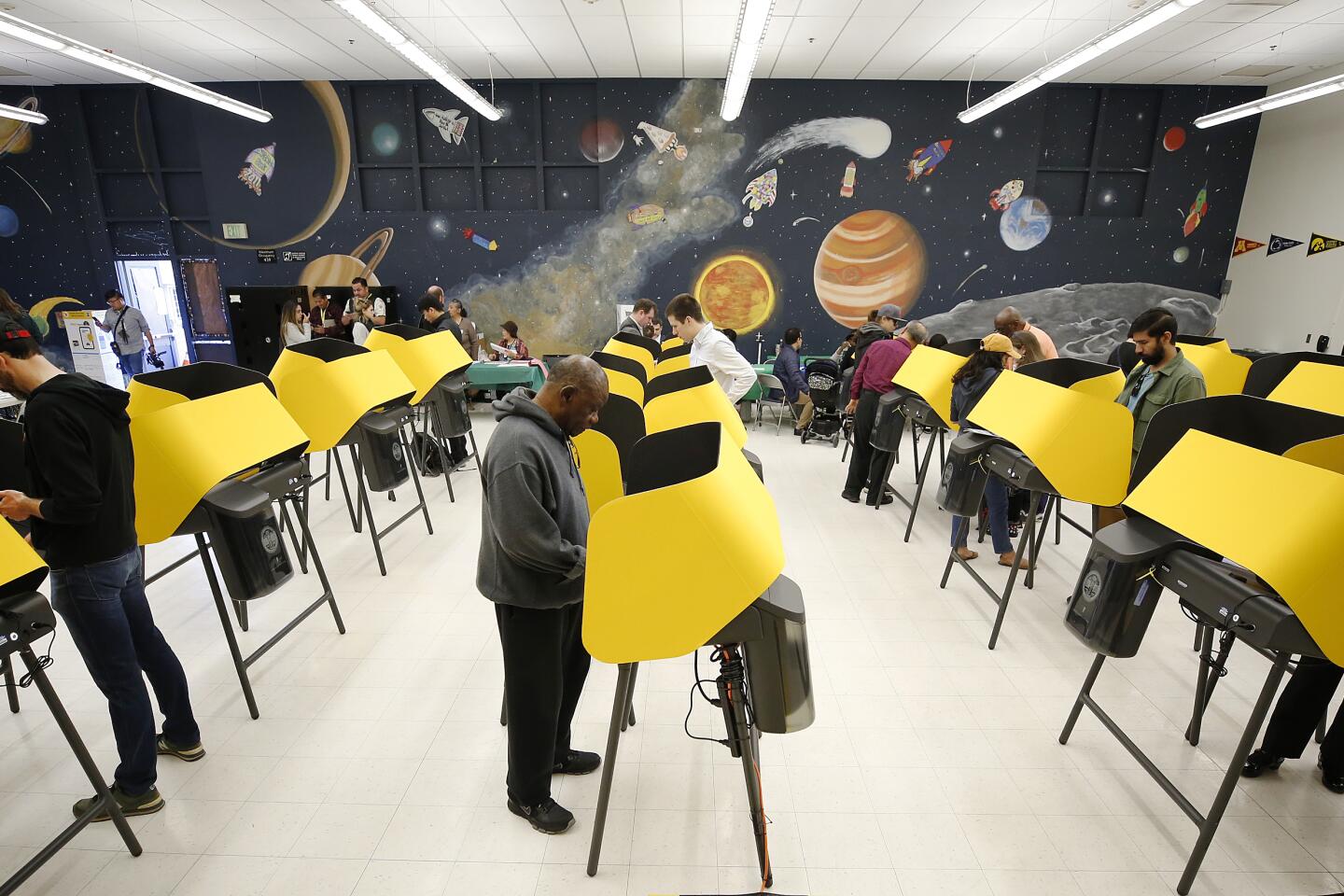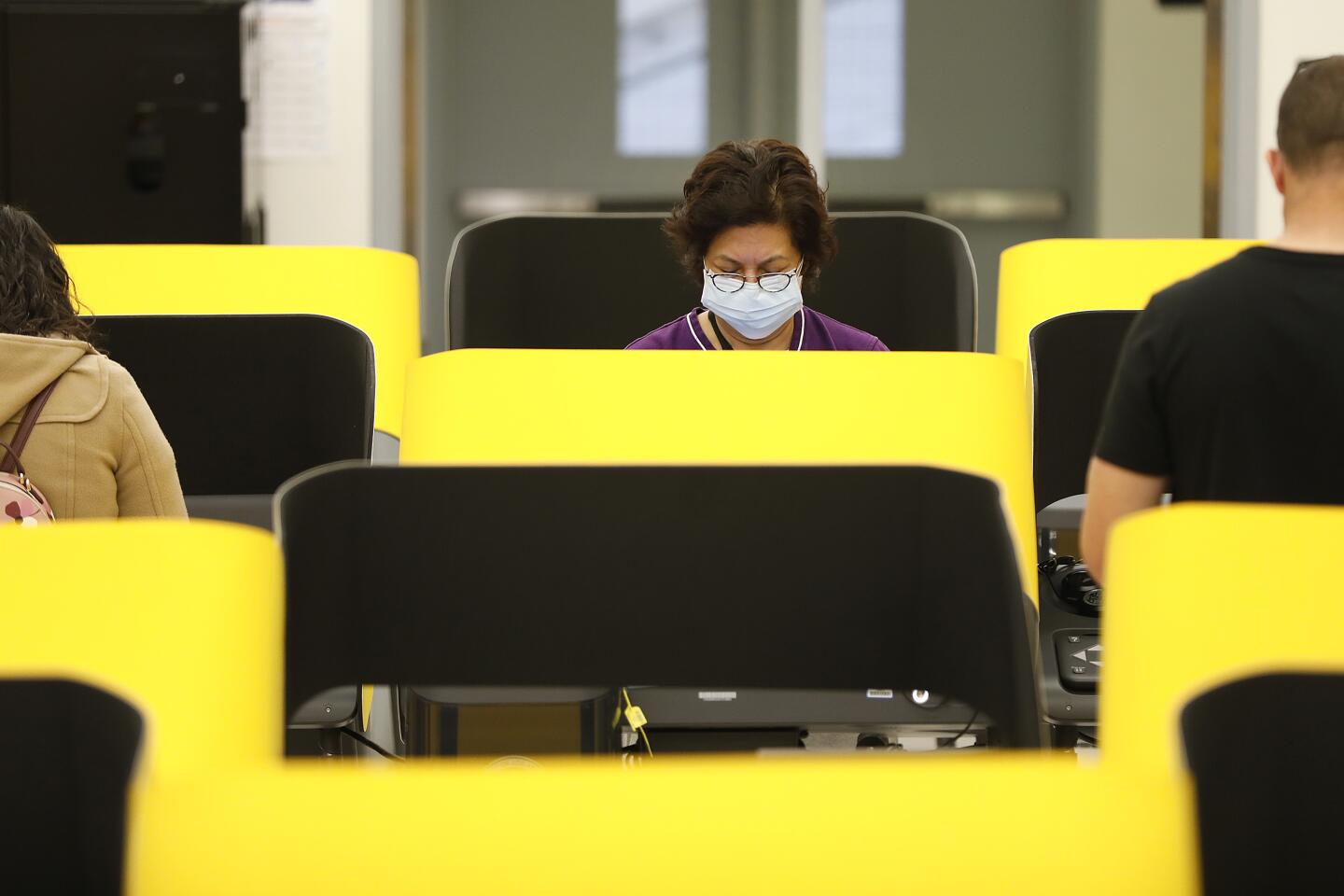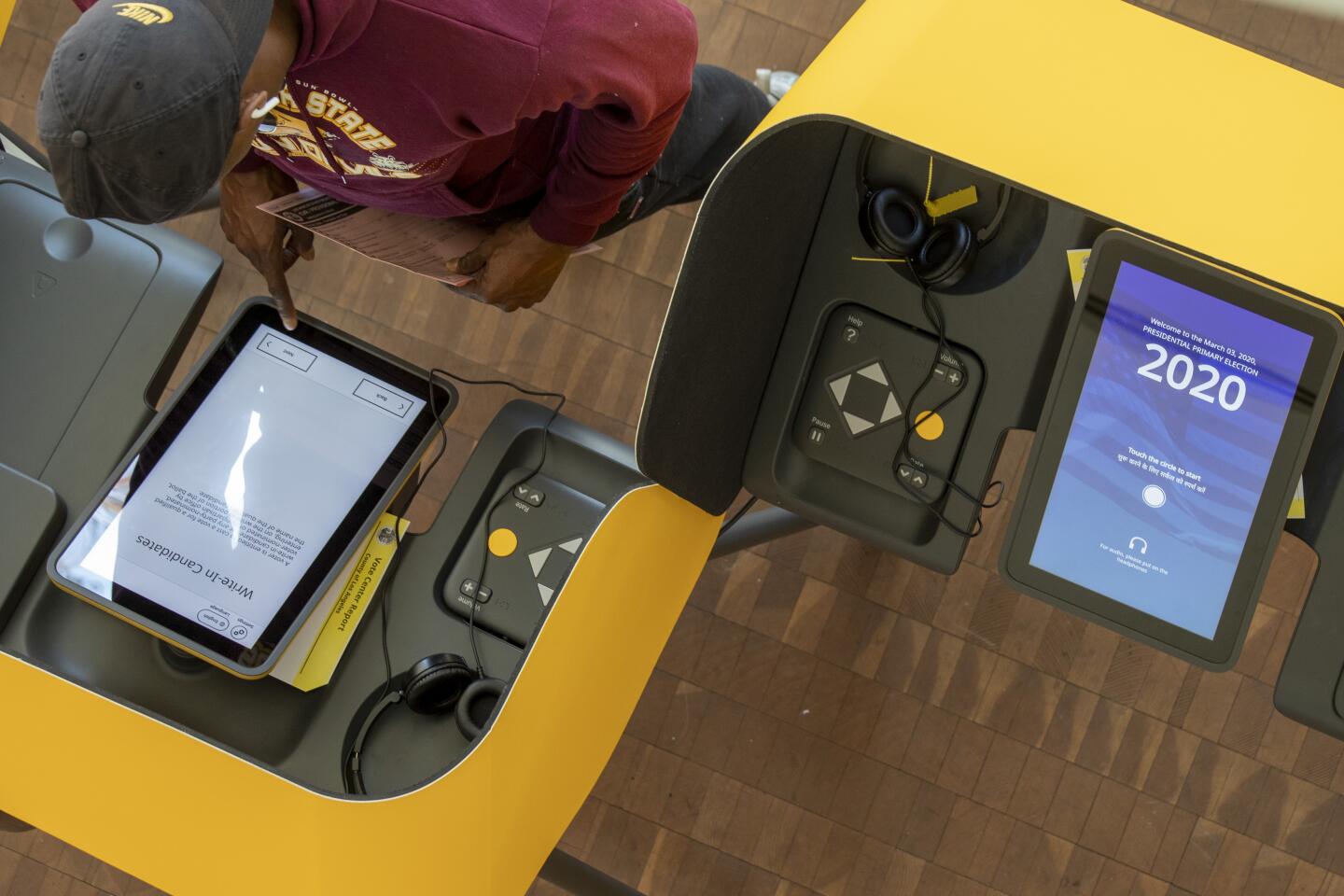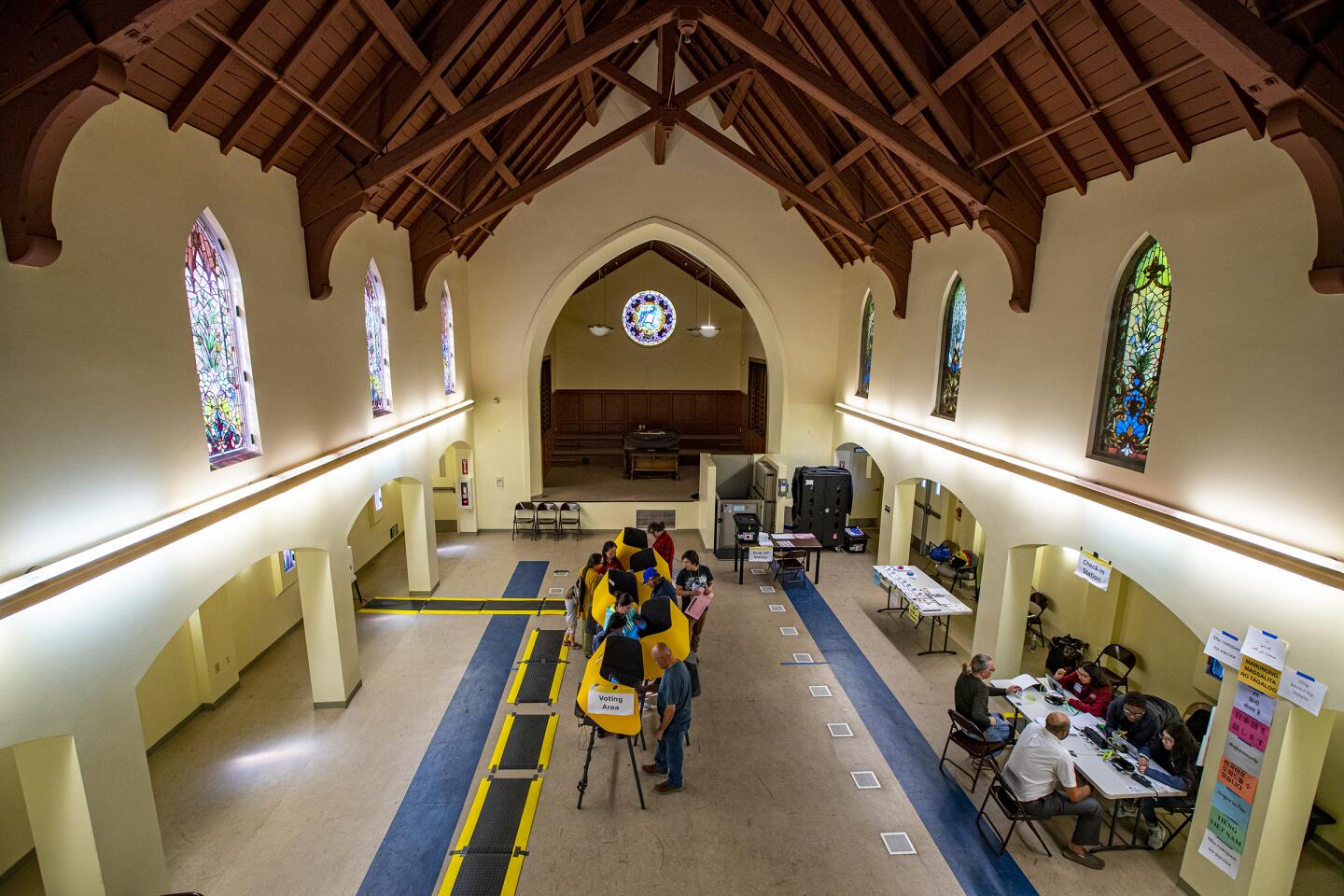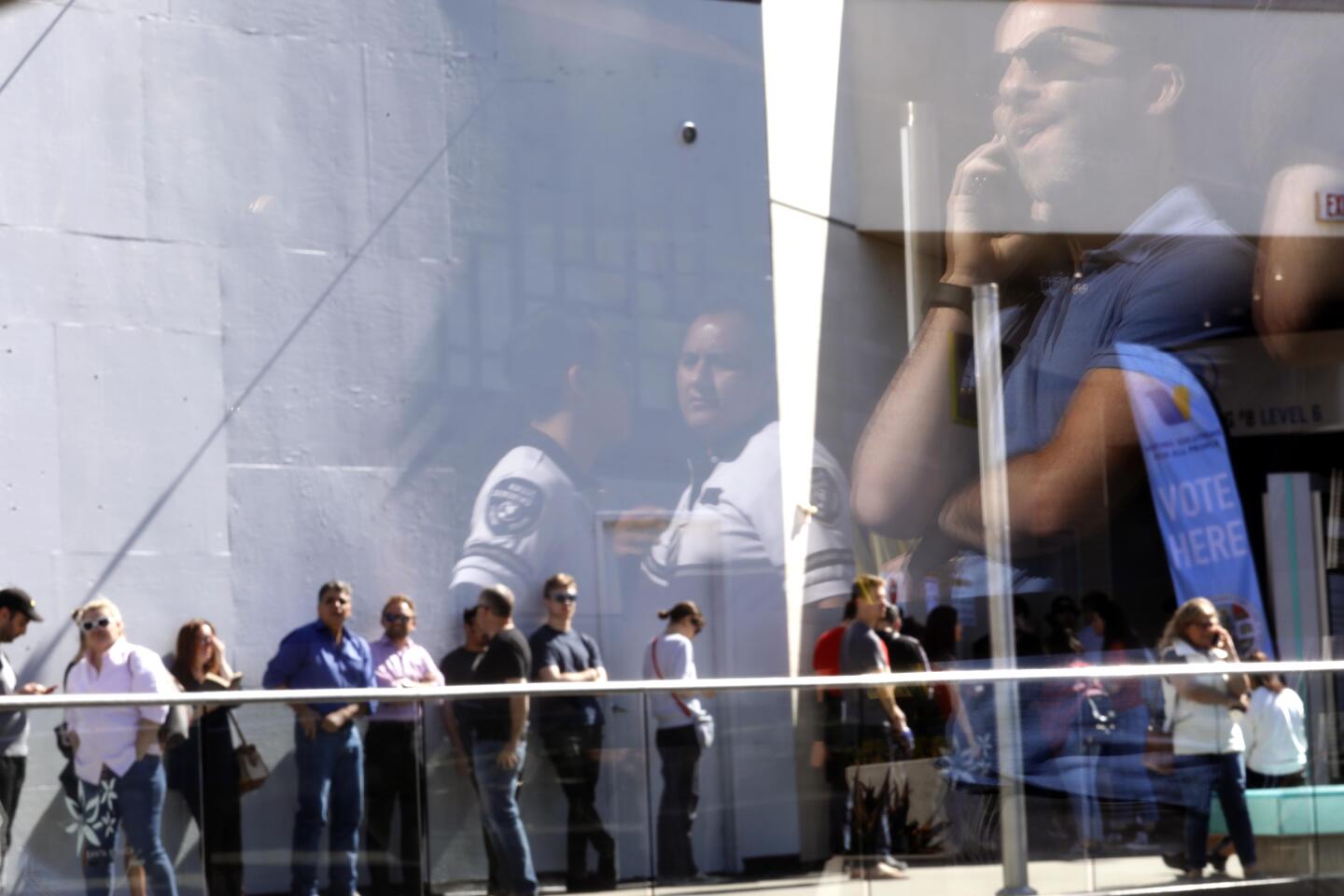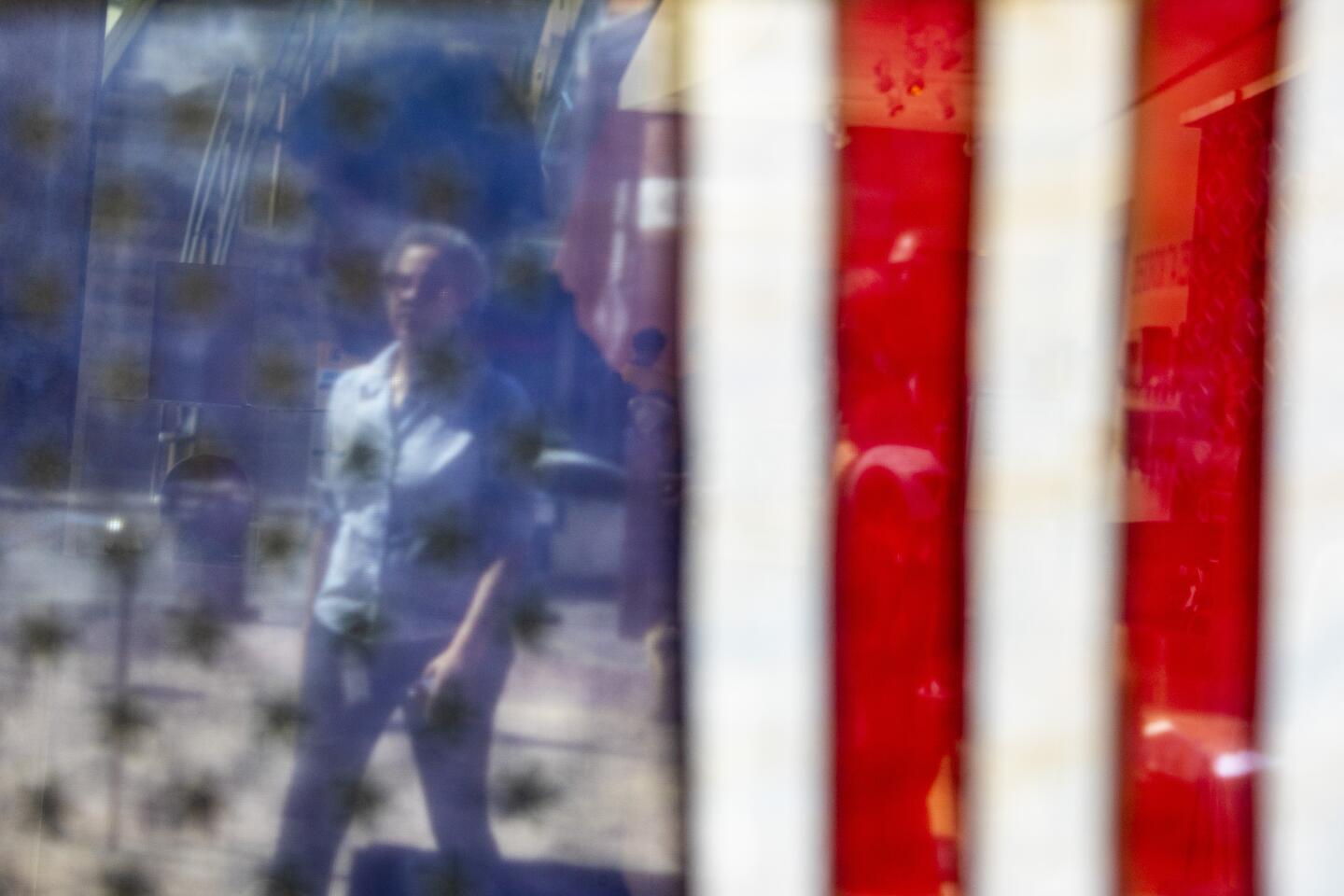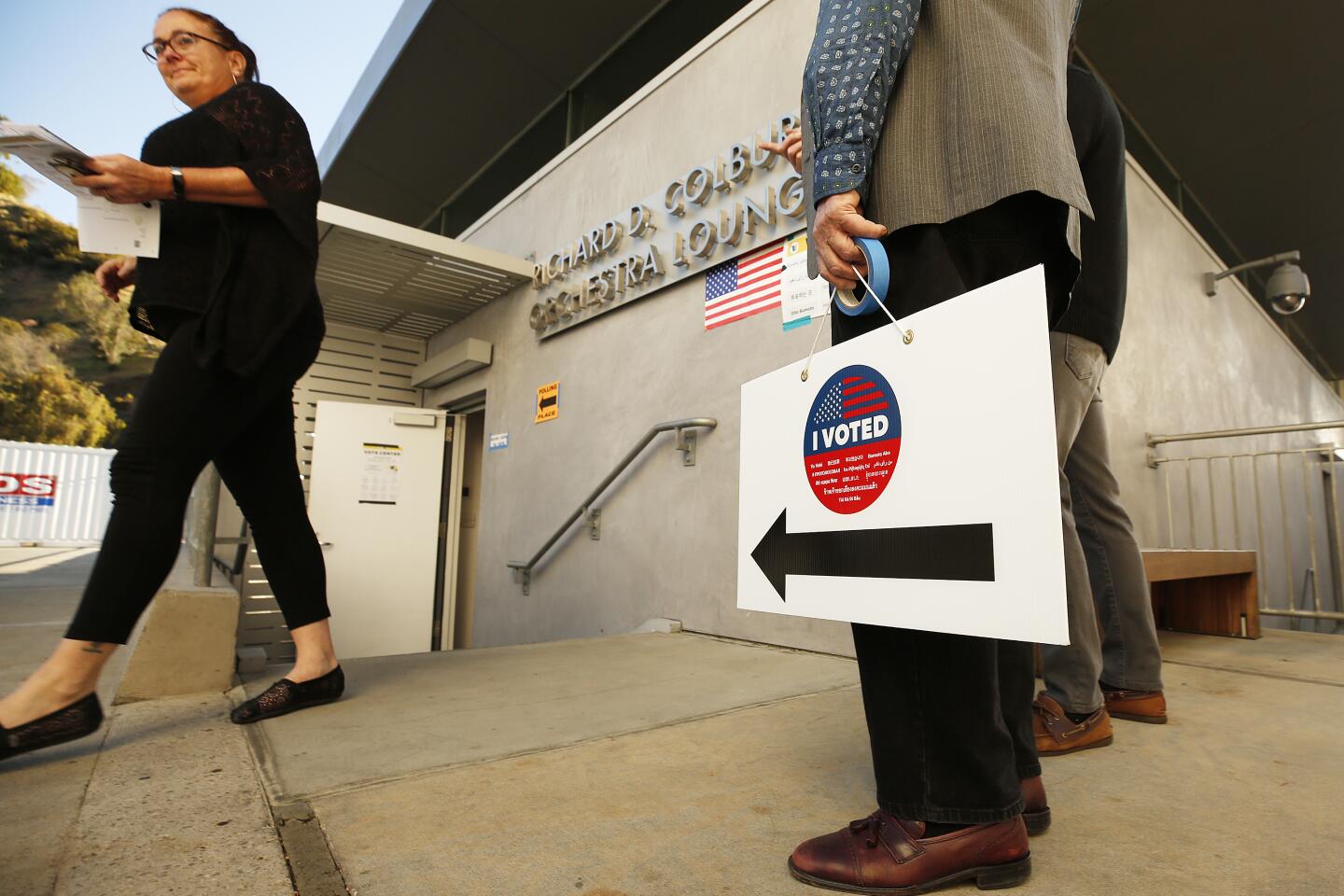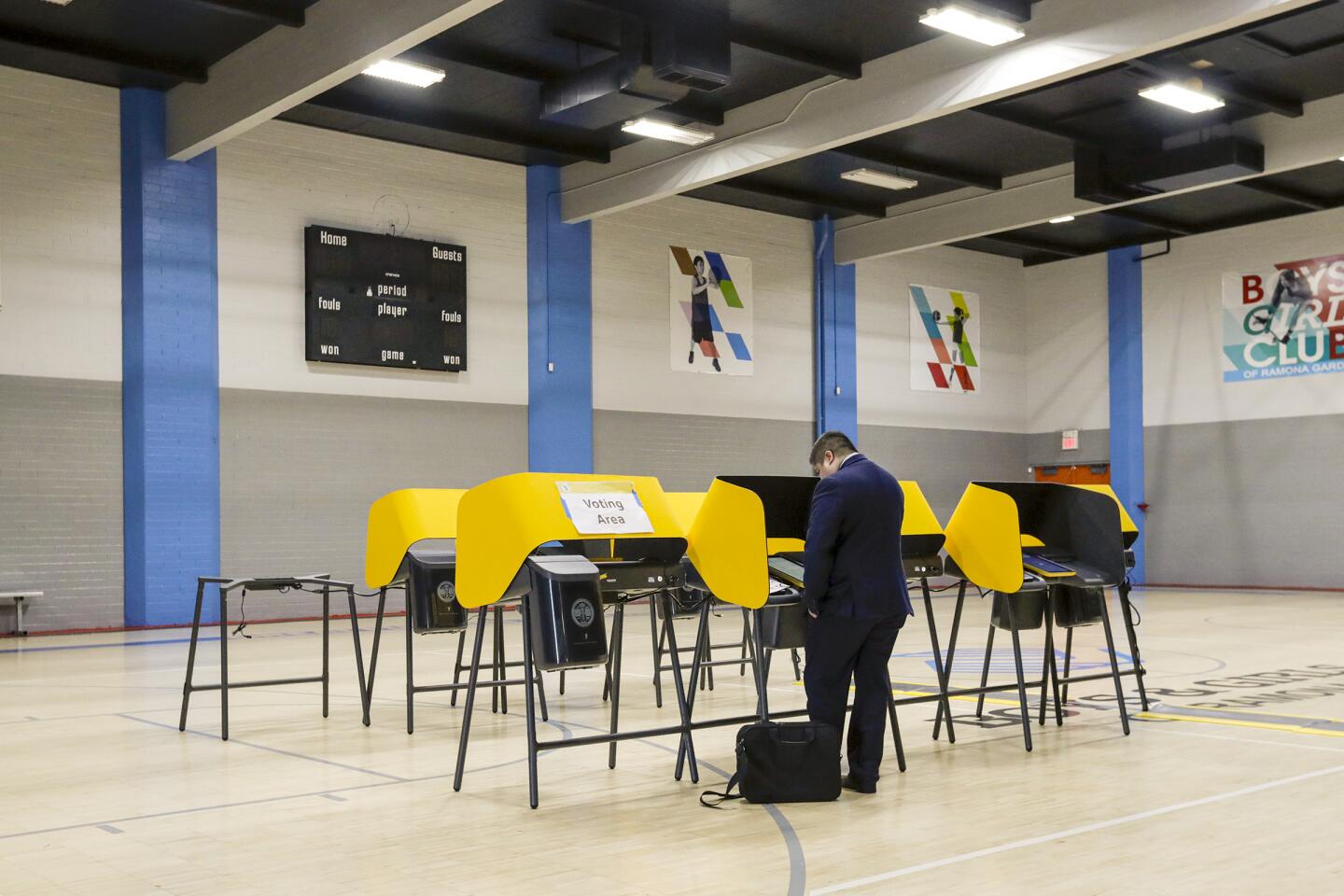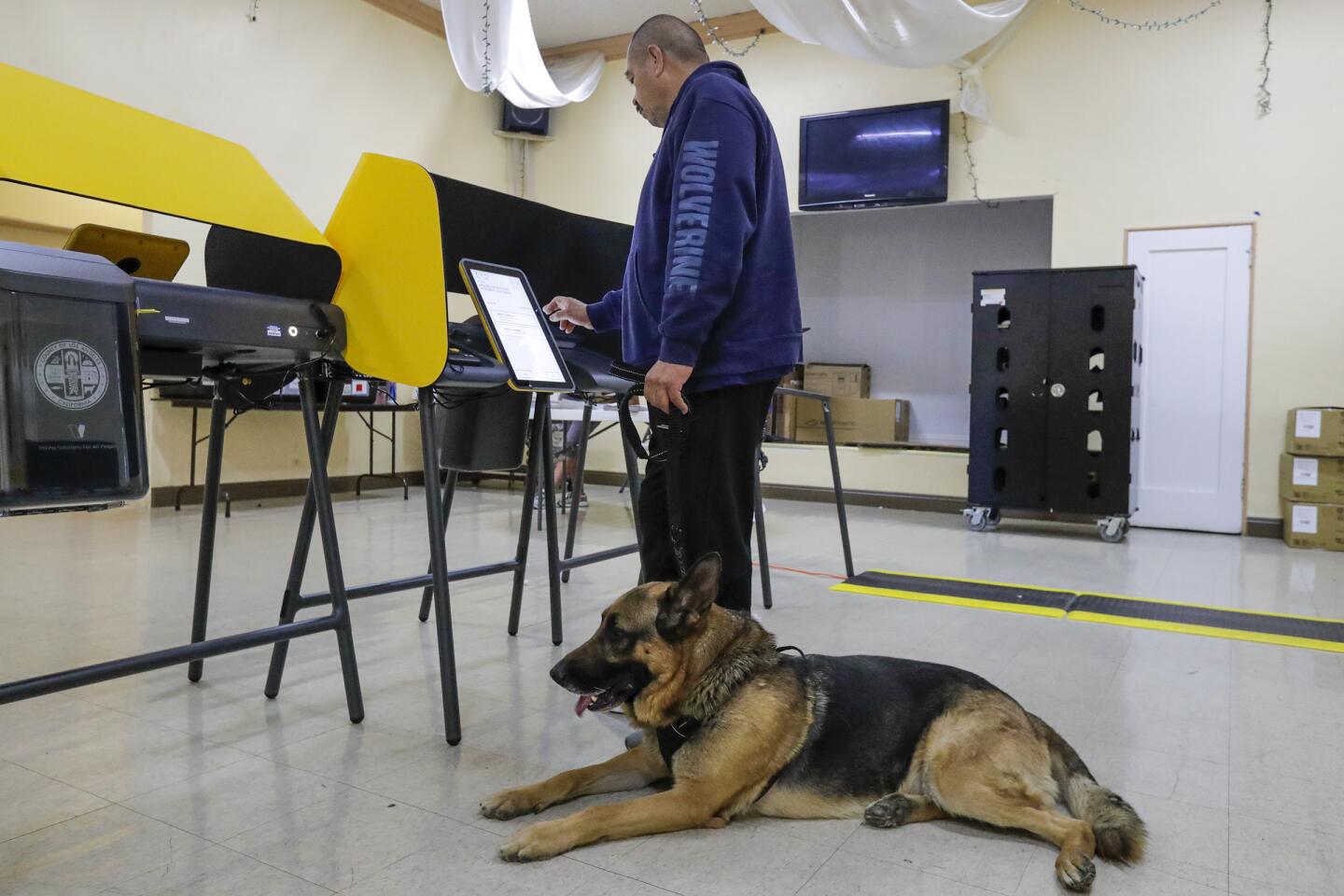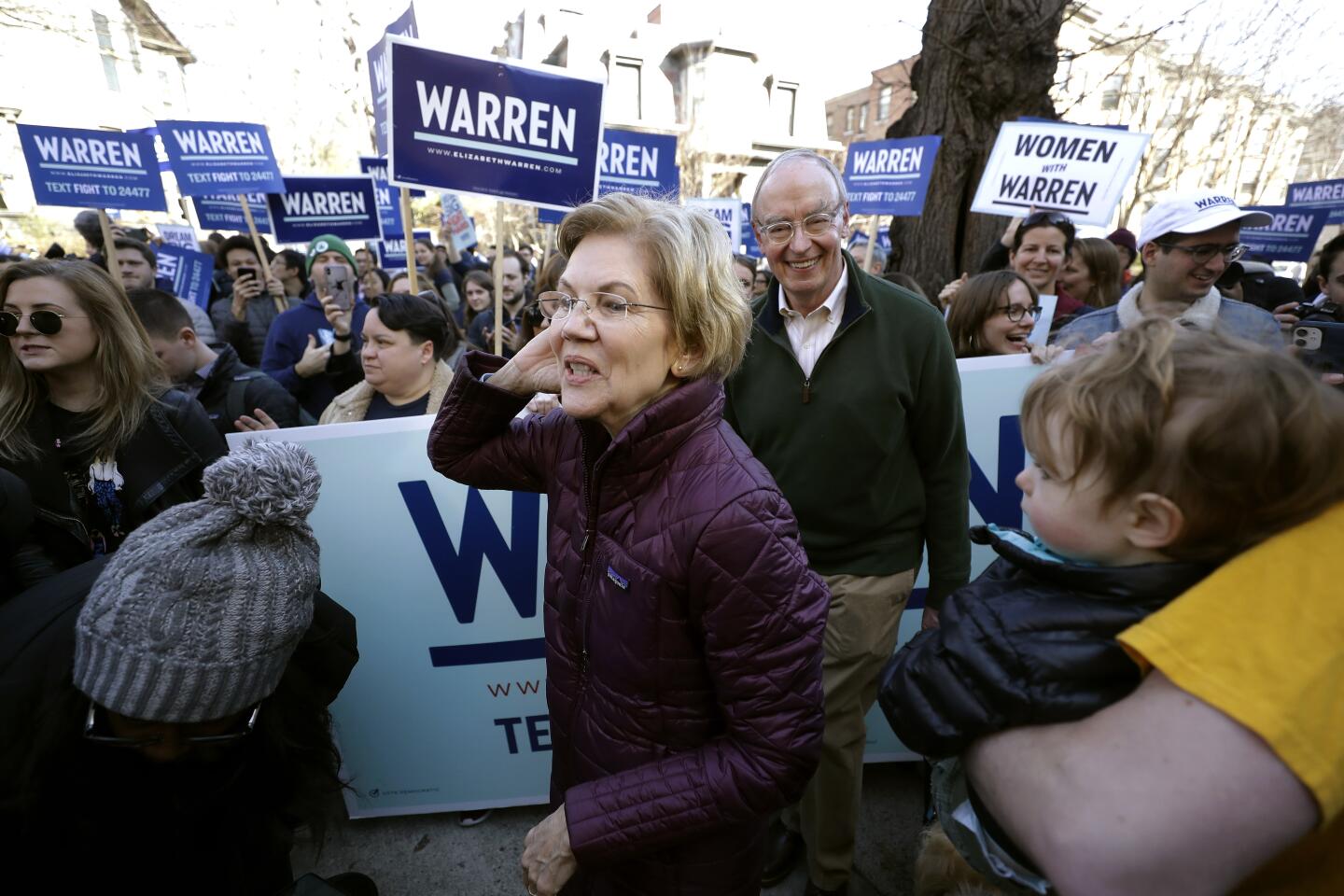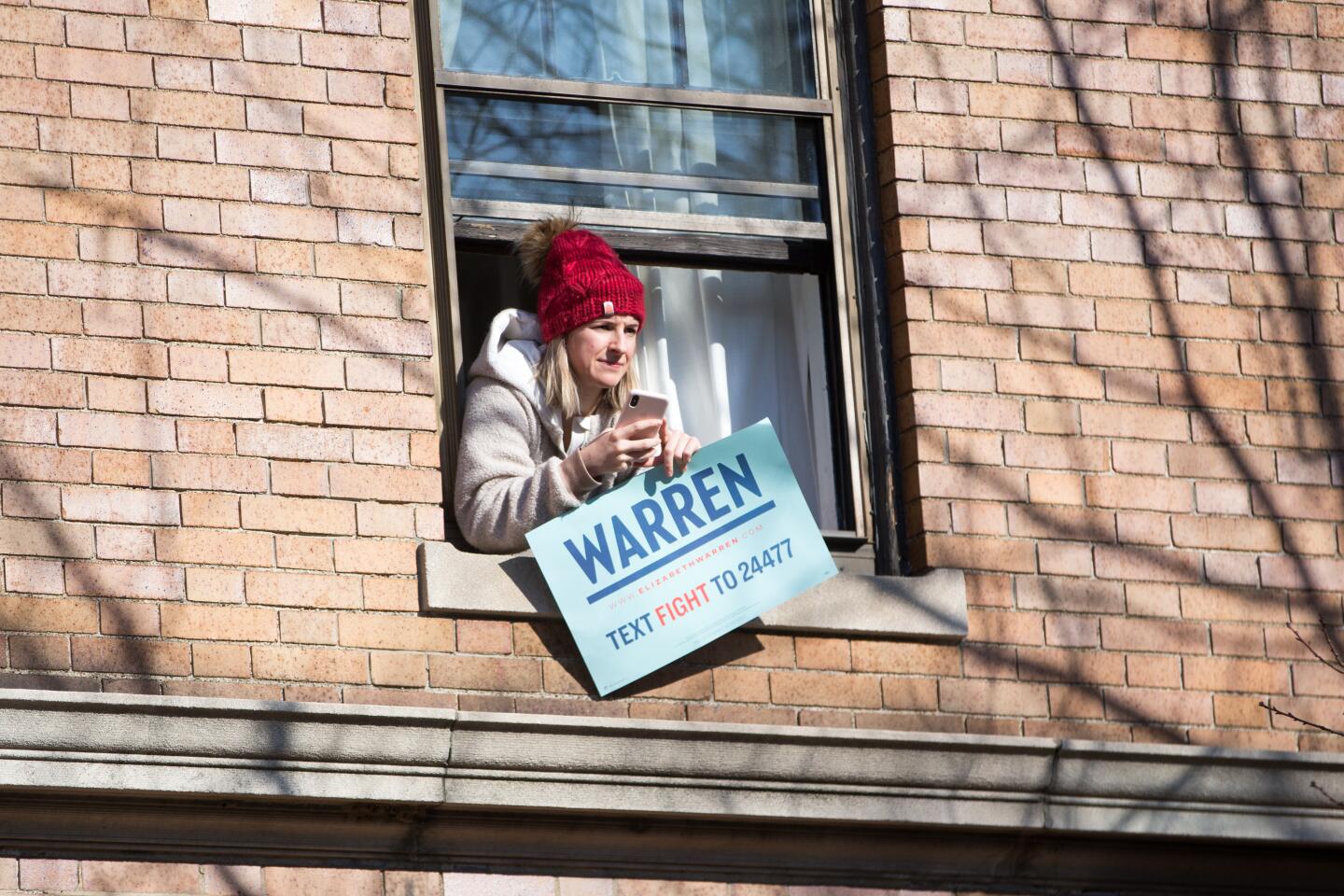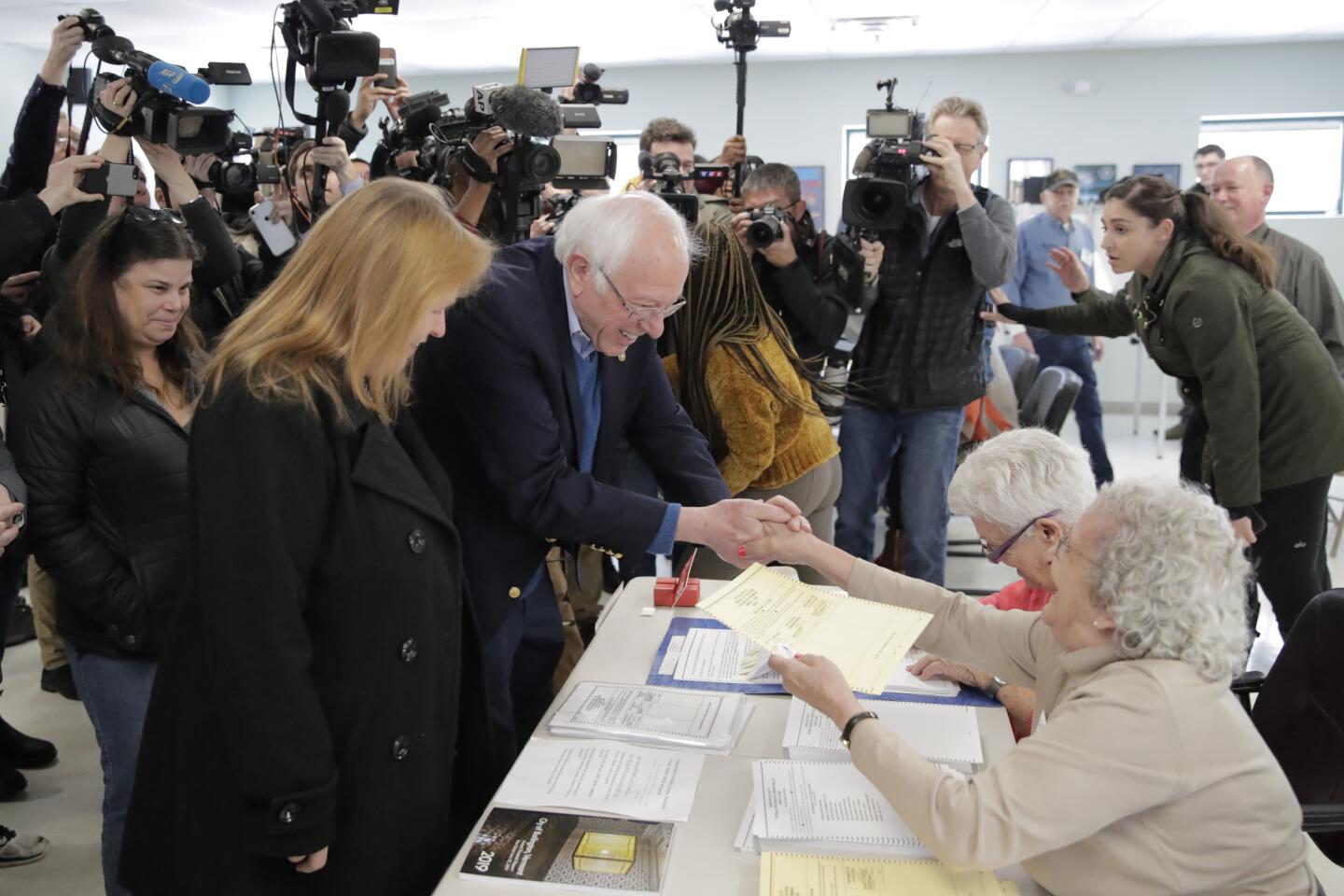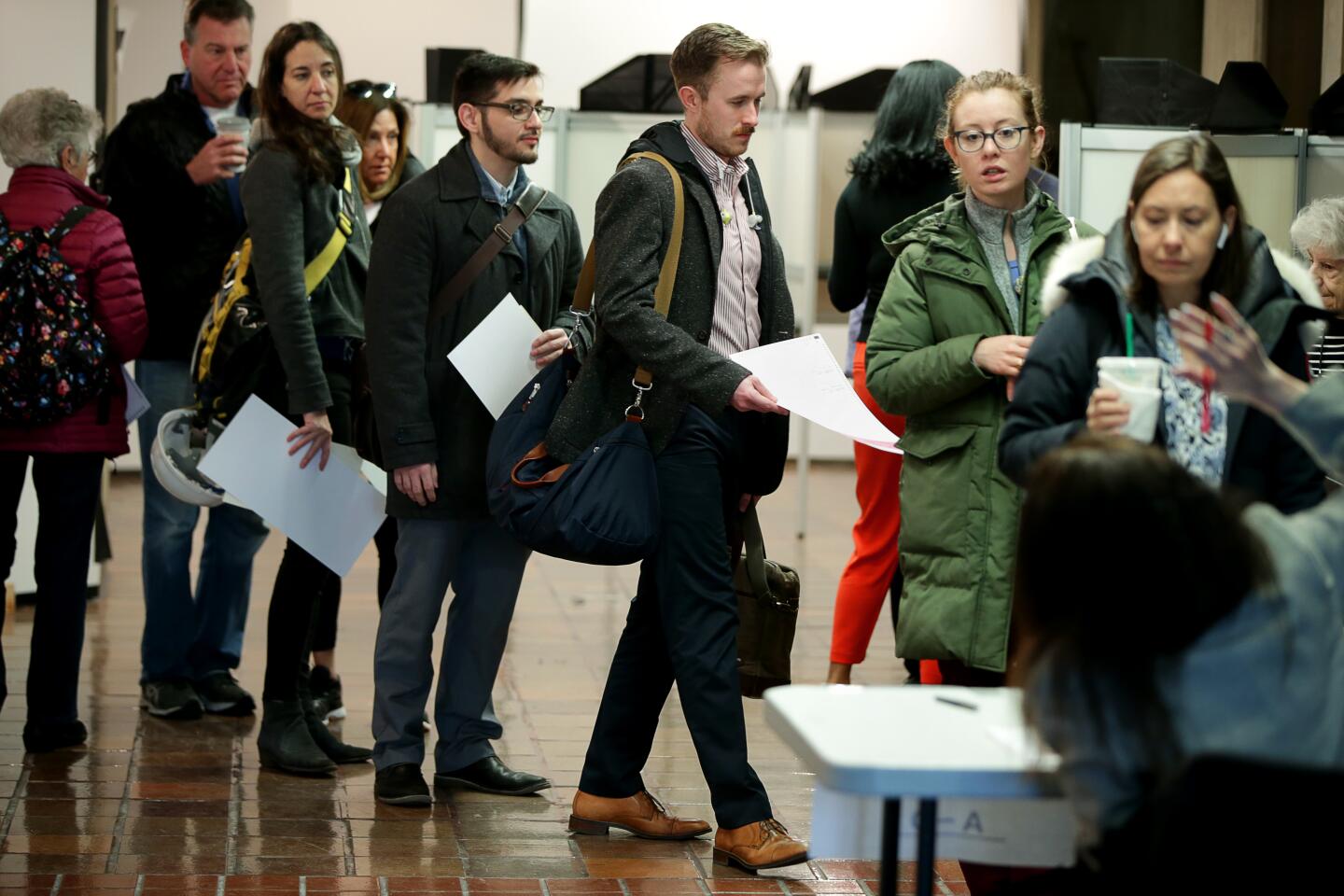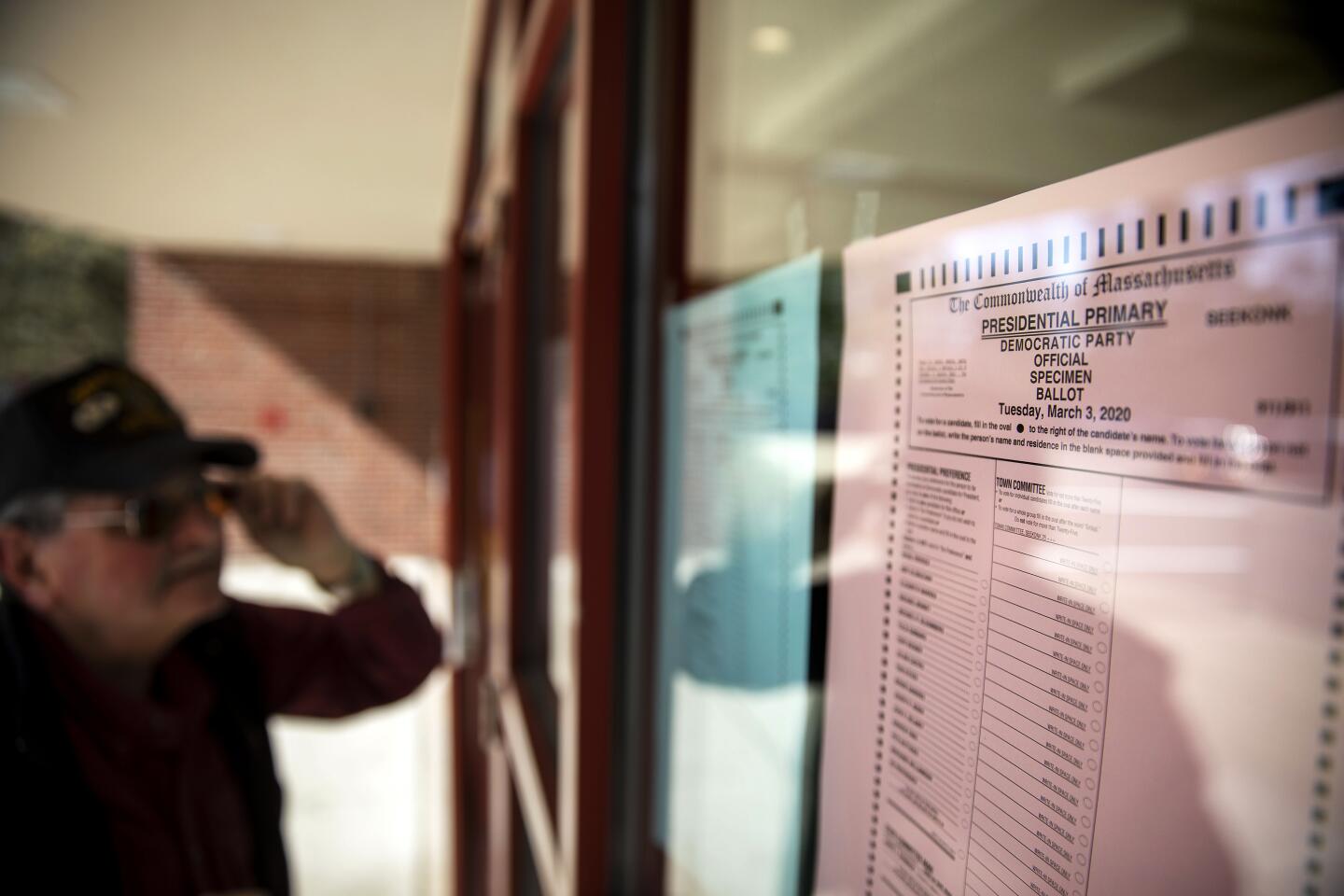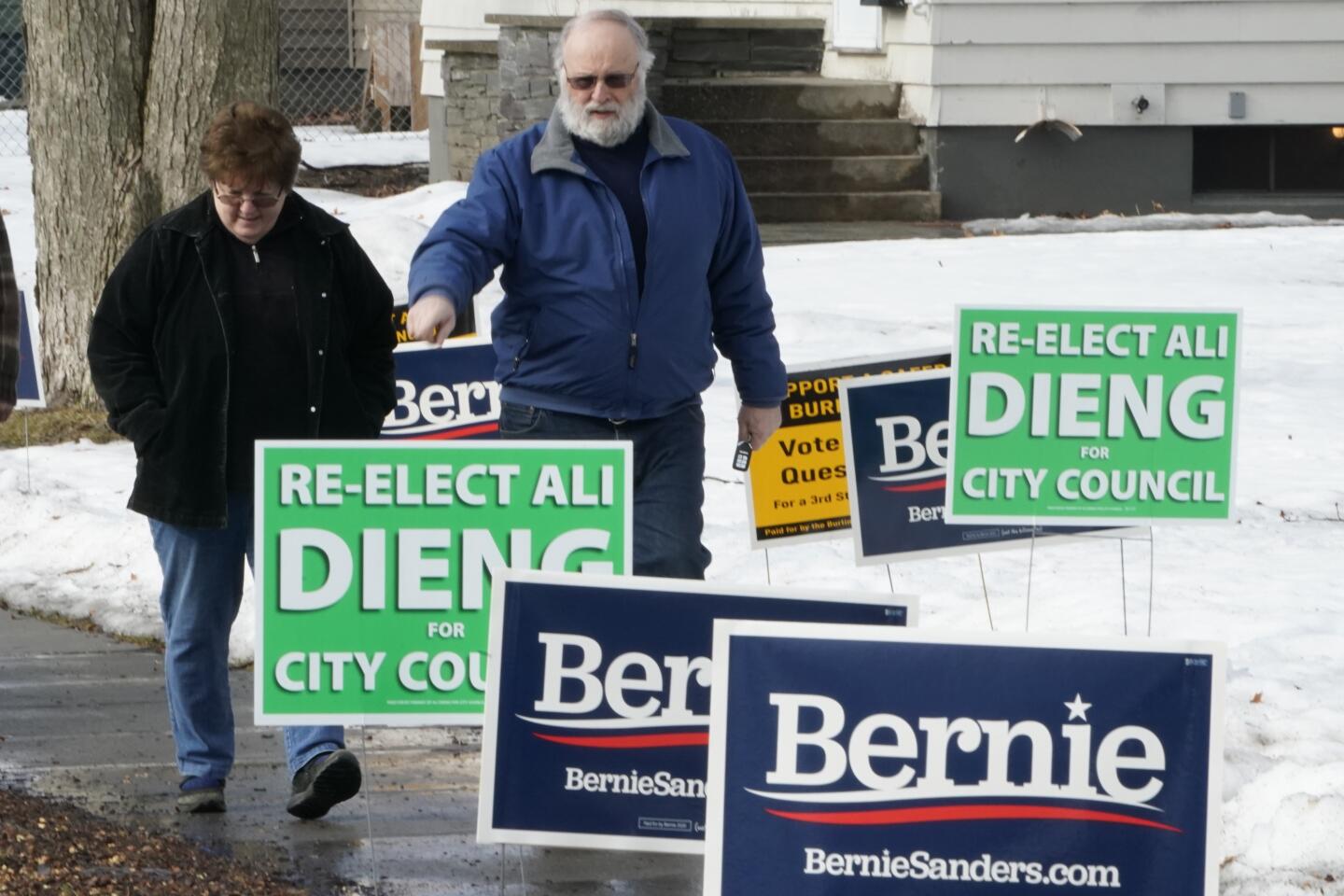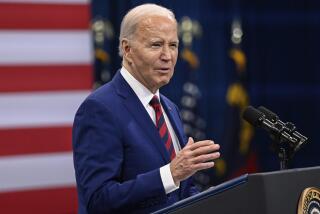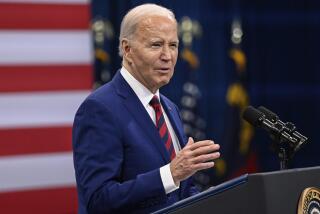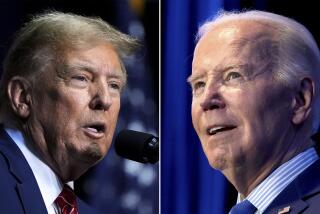Biden wins Texas and 8 other Super Tuesday states; Sanders takes California and 3 more
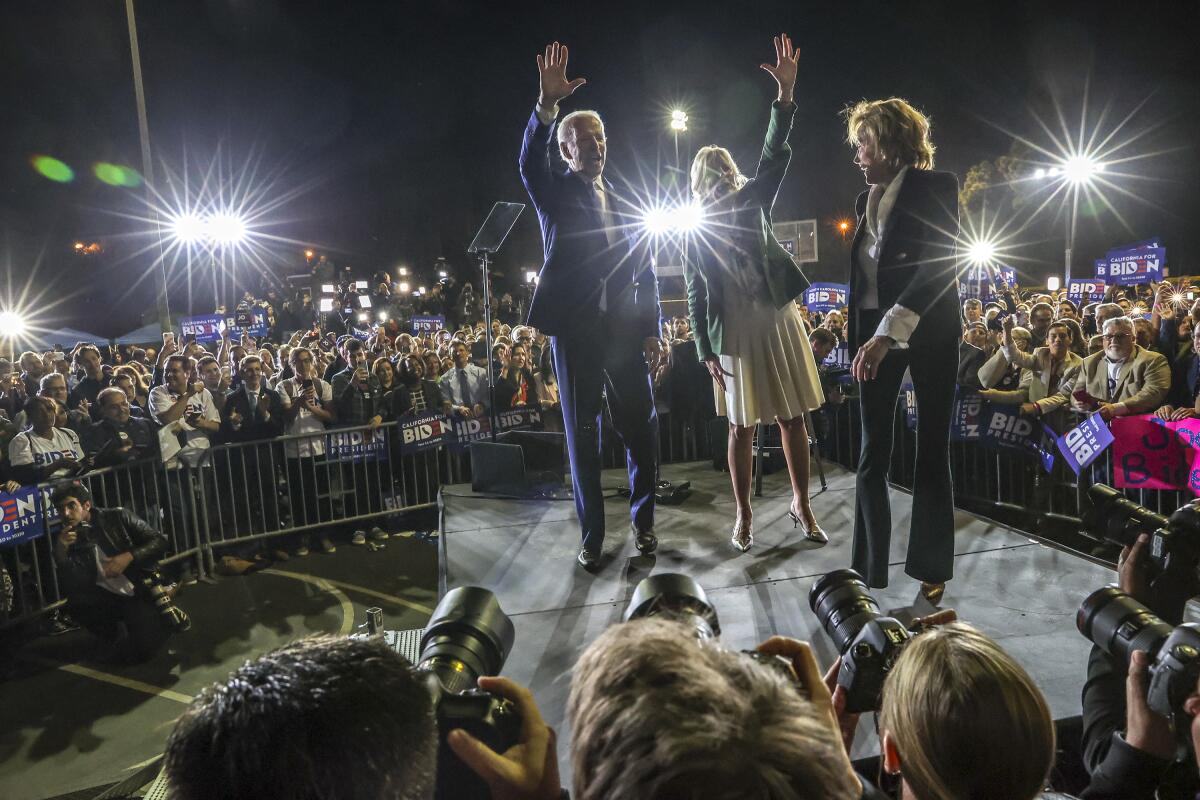
Joe Biden seized control of the Democratic presidential contest with a string of Super Tuesday victories over Bernie Sanders, as voters across the country cast their ballots determined to pick the candidate they believe stands the best chance of defeating President Trump in November.
The two split the day’s biggest prizes, Sanders capturing California and Biden taking Texas. The Vermont senator also won Colorado and Utah as well as his home state.
Biden, who had been all but written off after a stumbling start in Iowa and New Hampshire, emphatically marked his comeback with victories — some by double digits — in Alabama, Arkansas, Massachusetts, Minnesota, Oklahoma, North Carolina, Tennessee and Virginia.
Maine remained too close to call.
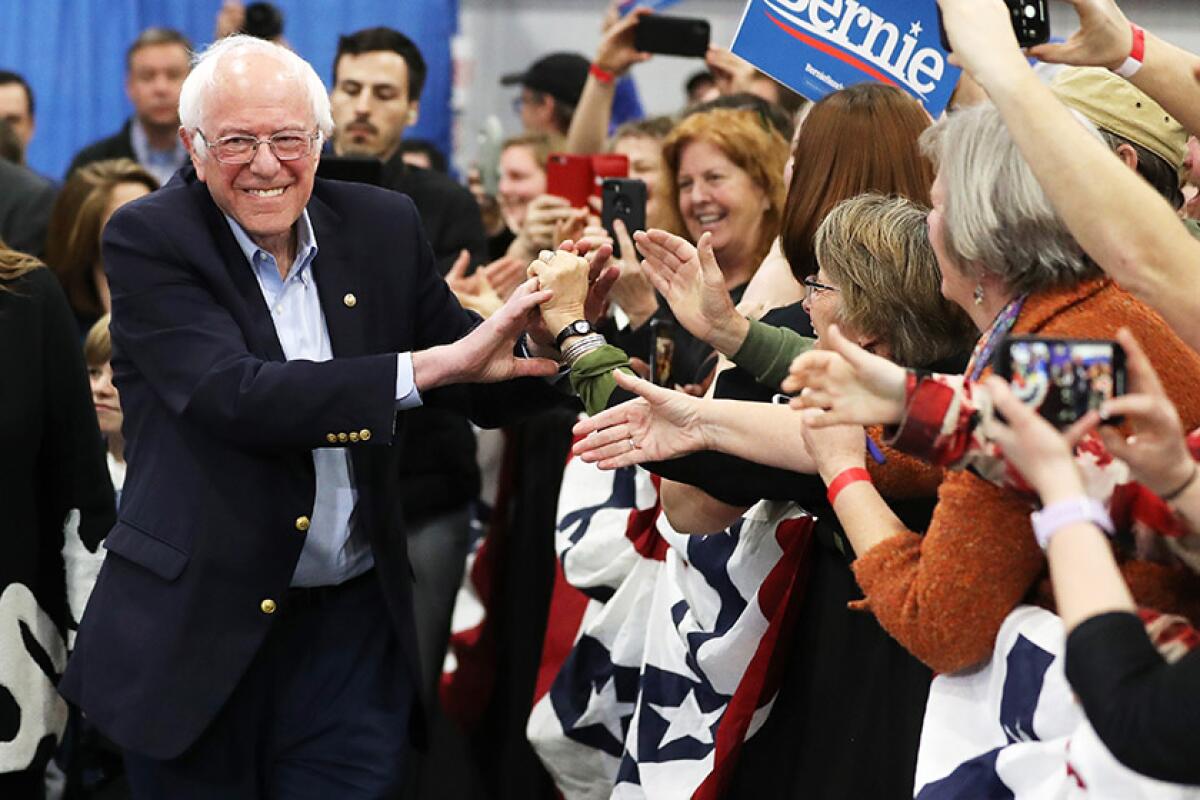
Former New York City Mayor Michael R. Bloomberg, who spent hundreds of millions of dollars seeking a Super Tuesday breakthrough after skipping earlier contests, managed only a win in American Samoa. He scheduled a Wednesday morning call with campaign leaders amid signs he was reassessing his candidacy.
From the hamlets of New England to the beach communities of Southern California, voters in 15 contests went to the polls in the campaign’s largest single day of balloting. At stake was about a third of the pledged delegates needed to win the Democratic nomination at the party’s July convention in Milwaukee.
Biden staged his roaring comeback by rebuilding the coalition that delivered him to victory Saturday in South Carolina — a win that turned around his fortunes overnight.
The former vice president garnered overwhelming support among black voters across the South — the bedrock of his campaign — and won handily among older voters and those who are politically more moderate. He also prevailed among the unusually large number of late deciders, who were evidently impressed by his crushing South Carolina victory.
In North Carolina, nearly 6 in 10 voters made up their minds in recent days and most backed Biden, according to exit polls conducted by Edison Research for a consortium of TV networks. In Alabama, nearly 4 in 10 voters decided late and more than 60% backed him.
Perhaps the greatest testament to Biden’s remarkable resurgence was the support of voters who said their top priority was beating Trump, an obsession among the president’s critics from the moment he took office.
Biden’s candidacy was predicated almost entirely on his claims of electability, which rang hollow after he finished far out of contention in the first two contests and a distant second in Nevada.
But on Tuesday night, exit polls showed in state after state that most voters were focused less on ideology than defeating the president; they preferred Biden over Sanders — often by huge margins.
“He’s going to get the job done and he’s going to beat Donald Trump,” Angeline Sanders, 74, said of Biden after voting for him at the Jordan Downs housing project community center near Watts Towers in South Los Angeles. “None of the rest of them can do it. And it sure isn’t going to be Bernie Sanders.”
Even before the polls had closed in California, a joyful and energized Biden took the stage at a park in Baldwin Hills, telling hundreds of supporters, “It’s a good night, and it seems to be getting even better. They don’t call it Super Tuesday for nothin’!”
Biden assailed critics who left his campaign for dead before he ran away with the contest in South Carolina.
“I am here to report we are very much alive, and make no mistake about it, this campaign will send Donald Trump packing!” said Biden, who was at a near-shout for much of his speech, in contrast to previous low-key election night appearances.
He then previewed some of the issues he may highlight as he tries to outlast Sanders: “affordable and accessible” healthcare, lower drug prices and a promise to find cures for cancer and diabetes. He also cited gun control, more affordable college and a redoubled commitment to fighting climate change.
Across the country, a combative Sanders jabbed at his suddenly ascendant rival and hinted at his own campaign agenda going forward.
“One of us in this race led the opposition to the war in Iraq; you’re looking at him,” Sanders thundered at a boisterous Vermont rally, where he also questioned Biden’s commitment to funding programs such as Social Security and Medicare. “One of us led the opposition to the disastrous trade agreement which cost us millions of good-paying jobs. And that’s me. And another candidate voted for disastrous trade agreements.
“If it comes out to be a campaign in which we have one candidate who is standing up for the working class and the middle class, we’re going to win that election,” Sanders said. “And if we have another candidate who has received contributions from at least 60 billionaires, we’re going to win that election.”
The other major contestant, Massachusetts Sen. Elizabeth Warren, addressed a crowd in Michigan, which votes next Tuesday, before the results came in showing her finishing third in her home state. She vowed to press on despite failing to win a single state since the voting began Feb. 3 in Iowa.
“I’m the woman who’s going to beat Donald Trump,” she said. “The pundits have gotten it wrong over and over.”
The Super Tuesday competition amounted to a fight pitting momentum against muscle and money.
On the biggest day of the Democratic presidential primary calendar, 14 states — from Maine to California — held primaries on Super Tuesday. There were1,357 delegates at stake, just over a third of the votes at this summer’s nominating convention.The balloting shaped up as a battle between Sen. Bernie Sanders and former Vice President Joe Biden.Former New York Mayor Michael R. Bloomberg dropped out Wednesday morning after a disappointing showing, considering the hundreds of millions he’s spent on his campaign. Sen. Elizabeth Warren also fell well short of expectations. Our reporters in California and other key Super Tuesday states followed the day’s developments and will keep you up to date on the aftermath.Live Super Tuesday results Photos: Super Tuesday | 14 states hold primaries with 1,357 delegates at stake
Sanders, who waged a strong bid for the 2016 nomination, was the candidate with muscle, a powerful turnout operation financed by an enormous fundraising base and a national army of devoted fans. Ivan DePaz voted for the Vermont senator just as he did four years ago.
“I love what he’s done. I love that he stands by what he says, and he’s been doing that since he started,” the 55-year-old talent manager said after casting his ballot in Los Feliz.
Biden, who staked his entire campaign on winning South Carolina, entered Super Tuesday badly lagging Bloomberg and Sanders in campaign money and on-the-ground organizing, two components that were considered vital to success in a such a large and sprawling contest.
It didn’t seem to matter.
His powerful showing on Saturday was enough to bring Frank Anderson around, along with a great many others.
The 74-year-old retired hospital administrator in Birmingham, Ala., had long considered himself a Biden man. But he began to worry after the former vice president slumped in Iowa and New Hampshire, finishing in fourth and fifth place, respectively.
South Carolina alleviated Anderson’s concerns. “Now I think he is the guy,” he said.
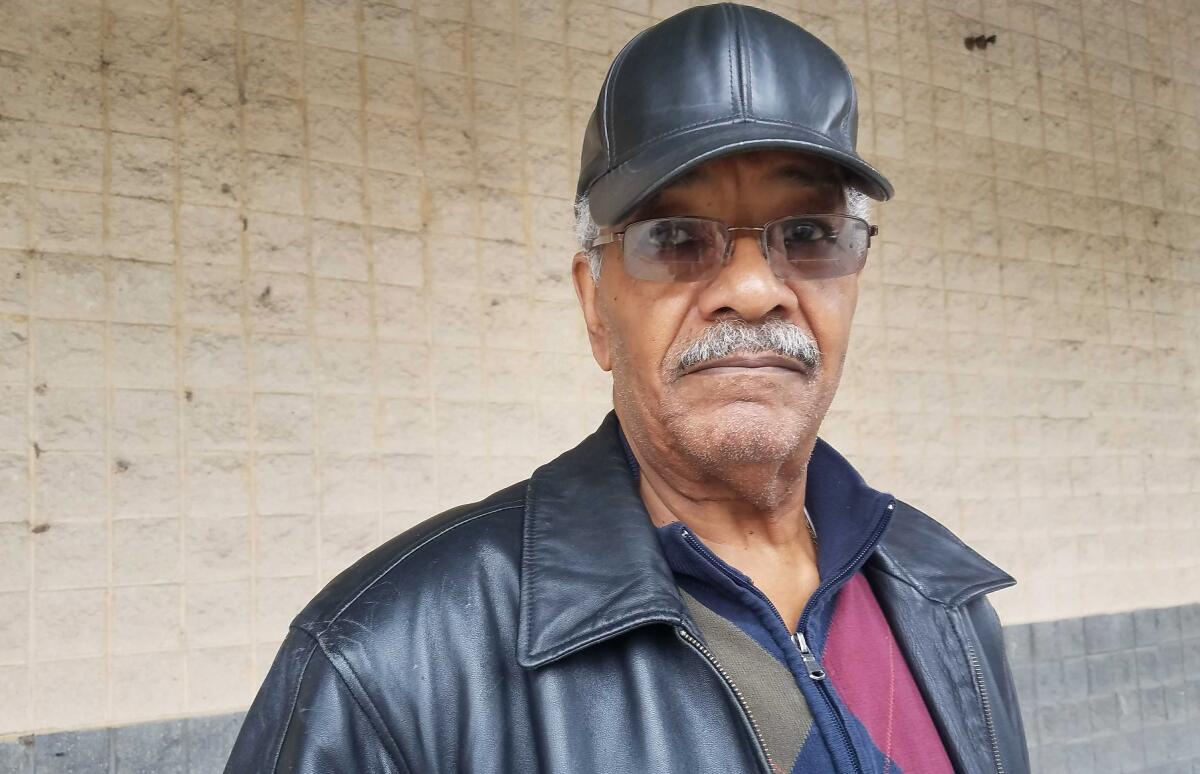
The candidate with money in staggering sums was Bloomberg. After two uninspiring debate performances, he braced for a poor showing despite lavishing more than $660 million on his candidacy, including more than $224 million on Super Tuesday advertising alone.
Speaking to reporters at a Miami field office, Bloomberg said he wasn’t counting on winning a single state and suggested his hopes rested on Democrats turning to him in the event of a deadlocked convention — the same scenario that Warren clings to.
“You don’t have to win states,” Bloomberg said, “you have to win delegates.”
Even before Tuesday’s first votes were counted, Bloomberg’s campaign manager sounded as though his candidate was preparing a possible exit from the race.
“We will find out how well he does tonight, and we’ll find out whether Mike Bloomberg is on his way to becoming the candidate, or we will find out if Mike Bloomberg is going to be the most important person to whomever that candidate is,” Kevin Sheekey told reporters ahead of a Florida campaign rally.
Super Tuesday was so named because of the number of contests — 16, including Democrats abroad, who have a week to make their preferences known — and the 1,357 pledged delegates to be awarded. It takes 1,991 pledged delegates to win the nomination on the first round of balloting.
If the fight goes to a second round at the convention, it takes 2,375.5, or the majority of those eligible to vote, which includes superdelegates — elected officials and other party leaders — or, as they’re being called this election, “automatic” delegates.
Super Tuesday’s here, where more than a third of all the Democratic convention delegates are up for grabs. Here are the key things to watch for.
Sanders entered the day with a narrow lead over Biden in the pledged delegate count, according to the Associated Press, after a small fraction was awarded in the four earliest-voting states. Biden pulled ahead Tuesday night, but it will take some time before California and Texas divvy up their share, which together accounted for nearly half the delegates being awarded on Tuesday.
Under rules established by the Democratic Party, delegates were allotted on a percentage basis, based on a candidate’s performance at both the statewide and congressional district levels. In each, candidates needed to meet a 15% threshold of support.
In Washington, Trump professed not to care whom Democrats choose.
Though he continued his effort to sow discord, claiming the Democratic establishment is trying to steal the nomination from Sanders, Trump insisted, “Whoever it is, we will take them on.”
“The job we’ve done. We’ve rebuilt the military, we have the strongest economy we’ve ever had, all of the things we’ve done,” he told reporters as he left the White House to visit the National Institutes of Health, a lead agency in combating the novel coronavirus. “I will take on anybody.”
Times staff writers Noah Bierman in Washington, Jenny Jarvie in Birmingham, Michael Finnegan in Detroit and Melissa Gomez, Arit John, Seema Mehta, Matt Pearce and Tyrone Beason in Los Angeles contributed to this report.
More to Read
Get the L.A. Times Politics newsletter
Deeply reported insights into legislation, politics and policy from Sacramento, Washington and beyond. In your inbox three times per week.
You may occasionally receive promotional content from the Los Angeles Times.

